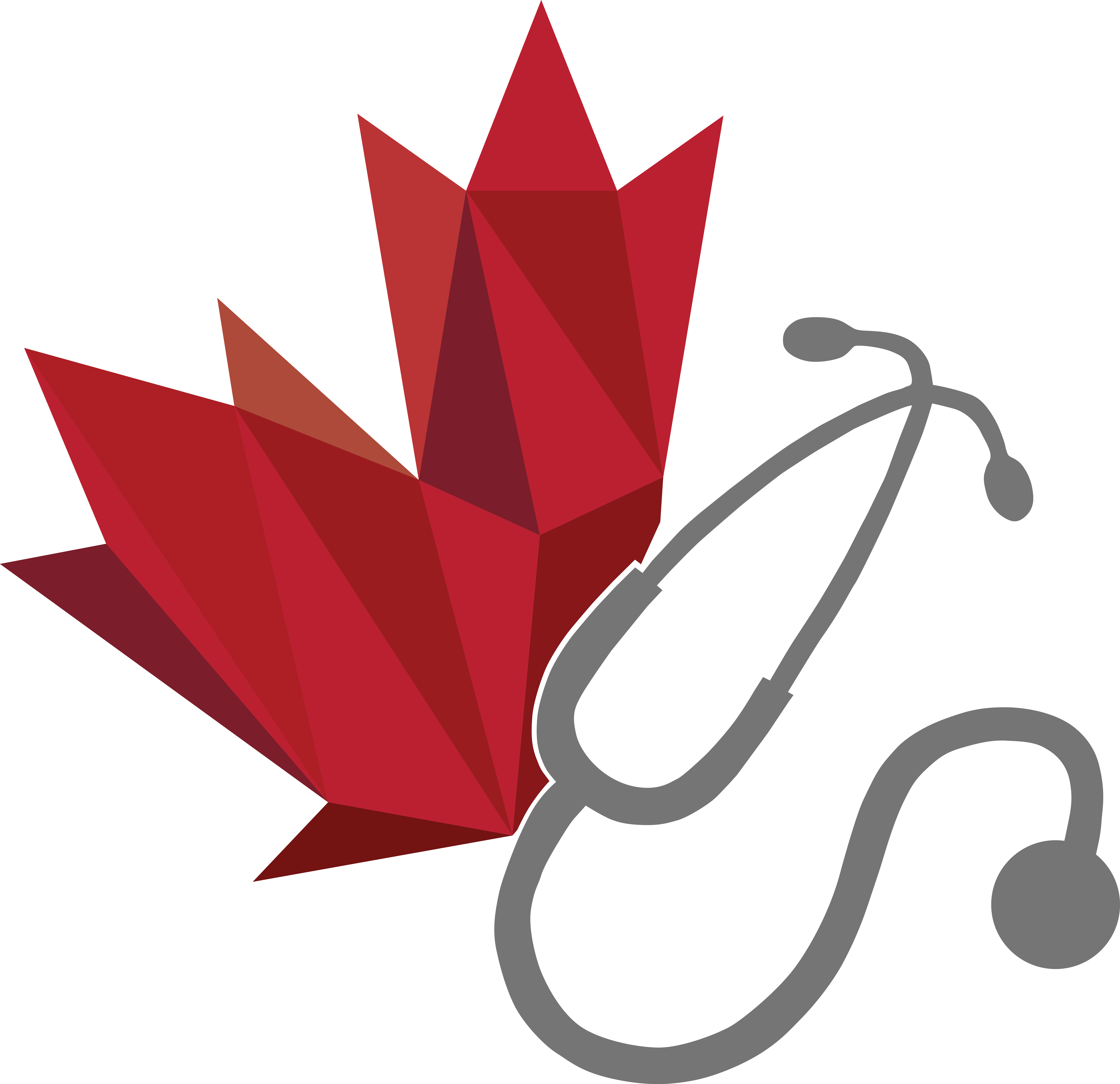CFMS Board Elections
Your candidates for 2025-2026 board elections
Note: Candidates are listed in alphabetical order
Direct to:
President
Astha for CFMS President
I’m Astha (she/her), and I’m running to be your next CFMS President.
First and foremost, I want to acknowledge that I am writing from the University of Alberta, situated on Treaty 6 territory—the traditional lands of First Nations and Métis peoples.
Over the past three years, I’ve had the privilege of serving CFMS in multiple capacities:
- 2022–2023: Governance Committee Member
- 2023–2024: Director of Education
- 2024–2025: Director of Education & Executive Vice President
These roles have offered me a deep understanding of CFMS’s governance and advocacy, while revealing the untapped potential we have yet to harness.
My Platform is Grounded in Three Core Priorities
- Equity: Embedded in structure
- Strategic Planning: From vision to execution
- Empowerment: Proactive, inclusive, and sustainable
Equity: Embedded in Structure
It’s time our governance truly reflects the diversity of the students we serve. Equity must be structurally embedded, not treated as an afterthought.
- Elevating Representation: Advance the expansion of the Social Accountability role on the Board to create formal representation for identity organizations such as IMSAC, BMSAC, and CQMSA. CFMS must act as a partner -not a gatekeeper- by establishing a Social Accountability Advisory Council that fosters collaboration while respecting organizational autonomy. (Proposal under review for AGM 2025.)
- Building Shared EDIA Foundations: Introduce a standardized EDIA onboarding package as part of Board transitions, including foundational training in EDIA and Truth & Reconciliation. Equity work must be distributed across leadership—not carried by a few.
- Accountability Across Portfolios: Implement portfolio-wide EDI assessments based on the 2024 CFMS Organizational EDI Audit. With the Education portfolio audit underway, this process should become a consistent, system-wide standard across all teams.
Strategic Planning: From Vision to Execution
As a key contributor to the development of CFMS’s 5-Year Strategic Plan, I’m ready to leadits execution—turning our collective vision into action.
- Bringing the Strategic Plan to Life: Publicly launch and embed the Strategic Plan across portfolios, with clear deliverables, measurable targets, and regular progress updates shared through infographics and social media—so students can see how their voices shape CFMS’s direction.
- Building Infrastructure for Growth: Finalize and distribute the MedSoc Governance and Orientation Toolkit —including funding guidelines, onboarding resources, and satellite campus governance structures—to support emerging schools and promote consistency across the country.
- Strengthening Internal Alignment: Launch a Presidential Task Force on Advocacy Coordination to enhance cross-portfolio collaboration, reduce silos, and expand projects like the advocacy database developed under the Education portfolio this year.
- Improving Access: Complete CFMS website redevelopment to make information more accessible, transparent, and student-friendly – ensuring all members can easily navigate CFMS services and opportunities.
- Ensuring Board Accountability: Implement real-time accountability measures through anonymous feedback mechanisms completed by National Officers, Roundtable reps, and MedSocs—ensuring elected board members remain accountable to the students they serve.
Empowerment: Proactive, Inclusive, and Sustainable
A strong organization doesn’t just represent students—it invests in their growth, access, and success.
- Expanding Access and Easing Financial Barriers: Launch the revised CFMS Travel Equity Fund and expand student discounts and supports to make national events and opportunities more financially accessible—especially for those facing systemic barriers.
- Building Strategic Partnerships: Strengthen collaboration with national organizations like RDoC, CMA, CaRMS, AFMC, MCC, CFPC, and MD Financial to co-develop resources, improve professionalism standards, and increase student-focused funding and services.
- Creating Space for Connection and Leadership: Host in-person town halls during Board meetings held in medical school cities, while expanding leadership and mentoring programming through PDoA resources, peer networks, and national webinars—ensuring students are not only heard but supported in their development.
- Strengthening Bilingual and Inclusive Communication: Advance bilingual engagement by improving translation practices and delivering French-language programming at national events—fostering a more inclusive and accessible CFMS for Francophone students.
Over the past three years, I’ve helped CFMS build and implement national initiatives that center student voices—from advocating for capacity-based electives to launching equity audits, coordinating academic supports, and shaping strategy. These efforts were student-driven, collaborative, and built to last.
If elected President, I will lead with clarity, structure, and care—ensuring that CFMS not only reflects the students it serves, but becomes stronger, more inclusive, and sustainable.
Let’s build that CFMS—together.
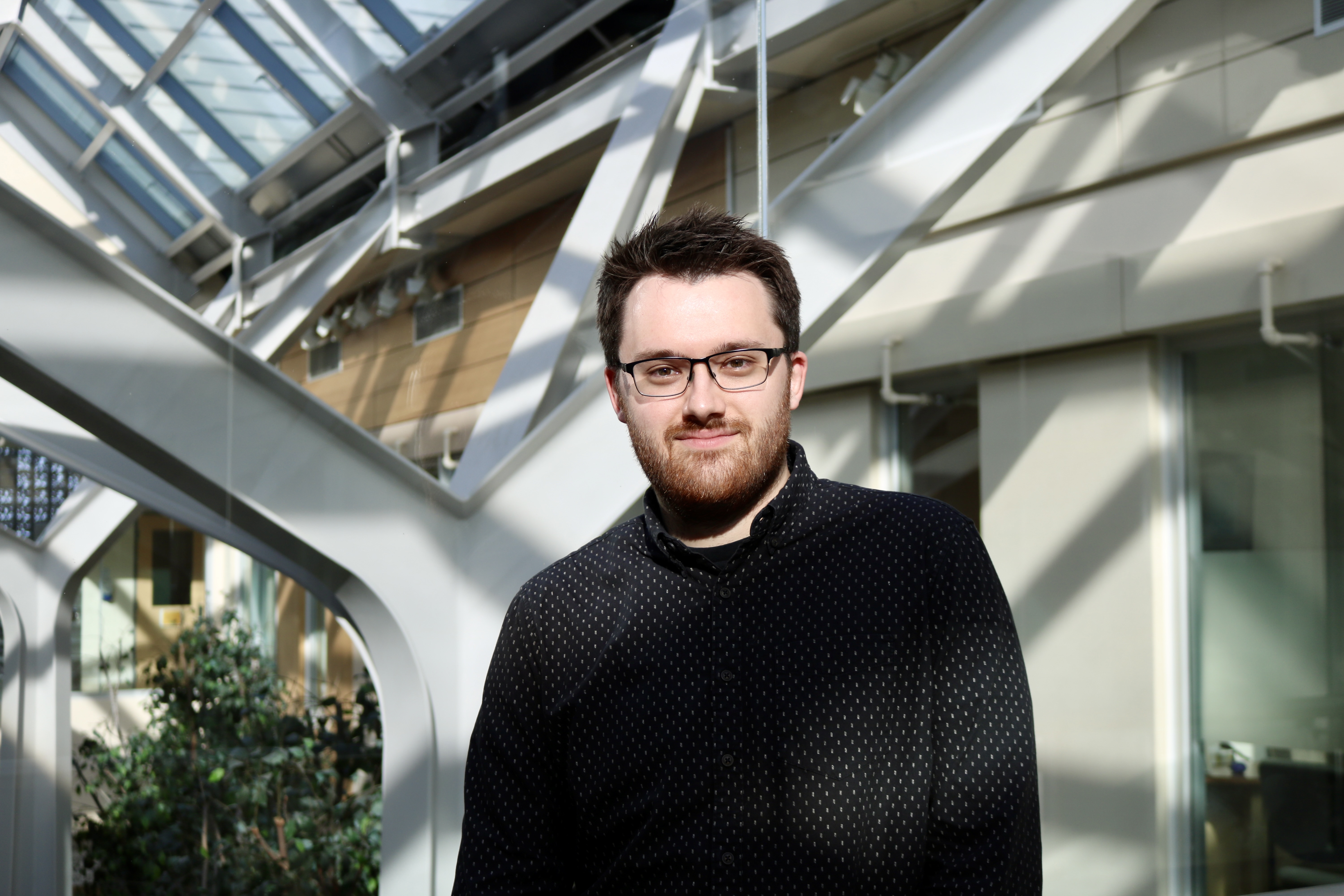
My name is Bryce Bogie,an MD-PhD (MD2027) Candidate at the University of Ottawa. I’m honored to present my platform for CFMS President.
I have extensive experience on local, institutional, and national boards. This past year, I led a full revitalization of the Government Affairs and Advocacy portfolio as Director. This included expanding the portfolio team, achieving record-breaking student/politician engagement, and securing $25,000 in direct student funding. I’ve developed strong relationships across all CFMS portfolios, bridging longstanding gaps and uniting them into a single, cohesive MEDoA Program. This allowed me to solidify a comprehensive understanding of the CFMS and its policies/activities. I also advanced CFMS-level improvements developing and passing the inclusive CFMS Catering Policy, signing MOUs with new partners (CCSA/HTN Canada), and serving as a voting member at the CaRMS Annual Meeting.
The CFMS is at an important inflection point. If elected President, I’ll leverage my extensive governance and advocacy experiences to work with you to build a better medical education system and experience.
My Vision for the CFMS is grounded in three pillars: Collaborate — Advocate — Nurture (C-A-N)
C — Collaborative Leadership and Vision
Action CFMS’ Strategic Plan
Implement/promote/communicate CFMS' strategic plan:
- 1. Ensure CFMS activities/initiatives integrate all portfolios, achieving a common vision (e.g., MEDoA 2025), preventing "siloed" portfolios.
- 2. Conceptualize/prioritize CFMS’ public relations and advocacy voice. Formalize:
- * Public advocacy on non-federal issues (e.g., Bill 83).
- * Partnership process (e.g., CCSA).
Modernized and Collaborative Governance
Streamline CFMS governance by:
- 1. Instituting monthly President–Director check-ins.
- 2. Implement Director–Consultant portfolio model, promoting continuity of work/institutional memory.
- 3. Improving PRTs through themed RTs/invited speakers.
A — Advocate for Equity and Student Support
Financial Transparency & Support for Students
Provide more funding to MedSocs and decrease costs for medical students to attend CFMS events by:
- 1. Comprehensively reviewing CFMS finances, cutting unnecessary costs not benefiting students.
- 2. Re-negotiating sponsorship/funding agreements that haven’t matched CPI/inflation.
- 3. Increasing revenue by seeking new sponsors/funders (government/external organizations), increasing CFMS’ financial standing/sustainability.
- 4. Meaningfully engaging MedSocs/members on the CFMS budget:
- * Extended opportunities for feedback/Q&A before vote(s).
Saved/re-structured funds will go to MedSoc/school initiatives/TEF.
Advocacy for Medical Education & Student Funding
Address mounting costs and ensure equitable education quality and representation by:
- 1. Advocating for provincial/federal/UGME funding for clerks (see Ontario and Saskatchewan models).
- 2. Advocating to provincial/federal organizations for the creation/expansion of travel equity funding for visiting electives (see Ontario model).
- 3. Advocating for/supporting learners at distributed campuses/sites:
- * Equitable access to leadership/mentorship opportunities and access to full scope of clinical/specialty exposure.
Increased CFMS Engagement and Support
Increase student engagement with the CFMS through:
- 1. On-the-ground/in-person CFMS event promotion.
- 2. Inclusive event dates/locations, maximizing students’ availability to participate:
- * Consider exam/OSCE/other “blackout” periods, travel time to/from events.
- * Promote event dates/locations with MedSocs/students well in advance.
- 3. Leveraging my connections with past/current/incoming deans to create school-specific bursaries supporting student travel/participation.
- 4. Increasing virtual participation opportunities.
- 5. Increasing CFMS funding for travel/lodging.
- 6. Increasing travel equity fund (TEF) transparency—provide approximate reimbursement estimates in advance, allowing students to plan.
- 7. Increasing financial support for MedSocs/local initiatives.
- 8. Active engagement with BMSAC/IMSAC/CQMSA/FMEQ to collaborate on/promote CFMS activities.
- * Increase bilingualism and Francophone representation.
N — Nurture Accountability, Resources, and Reputation
Social Accountability
Commit to holding the CFMS accountable to strengthening relationships with BMSAC/CQMSA/IMSAC/others and driving efforts/advocacy/initiatives on Truth and Reconciliation/I-EDIAA.
- 1. Create Director of Social Accountability portfolio:
- * Broad mandate; hold the CFMS/board accountable.
- * Portfolio budget/funds will come from finance review and existing funders/sponsors.
- * Improve coordination/cooperation between CFMS and BMSAC/CQMSA/IMSAC/others.
- 2. Introduce National Officers of Social Accountability into other CFMS portfolios.
- 3. Introduce/partner with designated CFMS representatives from BMSAC/CQMSA/IMSAC/others.
Accessible and Streamlined CFMS Resources
Create/provide consolidated resources for MedSocs/students:
- 1. Implement re-vamped/concise CFMS website.
- 2. Create CFMS Central, a comprehensive/centralized database of academic and nonacademic institutional and MedSoc policies, building on my MEDoA 2025 work:
- * Supports CFMS/MedSoc advocacy/strategic planning.
- * Space for resource sharing.
- 3. Create Opportunities Hub, organizing school/provincial-level events/research/advocacy initiatives.
Stronger Stakeholder Partnerships
Improve relationships with student/organizational partners through:
- 1. Regular meetings with AFMC/CaRMS/CMA/RCPSC/CFPC/IPAC/journals/others to build/maintain/strengthen trust and respect.
- 2. Strengthened relationships/support with CAMSA/FMEQ/OMSA/WMSA:
- * Invite Presidents to board meetings (non-voting).
- * Quarterly “organizational roundtables” with Presidents.
- * Unify shared vision/goals/initiatives.
- 3. New relationships/collaborations with CITAC/AMSA.
Together, we C-A-N build a more united, supportive, representative CFMS!
Vice-President of Finance

Financial Platform:
1. More Money Back to Students
My top priority is ensuring that more of our funds make it back to medical students. I will critically review internal spending, identify areas to optimize costs, and reinvest savings into high-impact student initiatives — including travel support, wellness, and equity-focused programs. I’m committed to maximizing the value of every dollar spent.
2. Smarter Systems, Stronger Foundations
This is the time to modernize how CFMS manages and tracks its finances. I will advocate for a digitized reimbursement and budget-tracking system to improve accessibility and ease of use. Internally, I aim to enhance clarity in budget reporting, introduce tools to monitor spending in real-time, and develop frameworks that better assess the return on investment for CFMS initiatives.
3. Transparent, Collaborative Financial Planning
Financial transparency shouldn’t just be a report — it should spark conversation. I propose expanding financial engagement at the AGM and SGM and creating opportunities for students to better understand what supports are available. This includes helping students plan more confidently for travel funding by sharing school-level allocation trends. It’s time we made budgeting more collaborative and more predictable.
4. Strategic Growth Through Partnerships
CFMS has much to gain by learning from and working alongside peer organizations. I will strengthen partnerships with groups such as BMSAC, IMSAC, OMSA, and CMA to learn from their financial models and identify opportunities for shared growth. From fund allocation to sponsorship strategies, I’ll use this term to gather insights that build a more financially resilient CFMS — now and for the years to come.
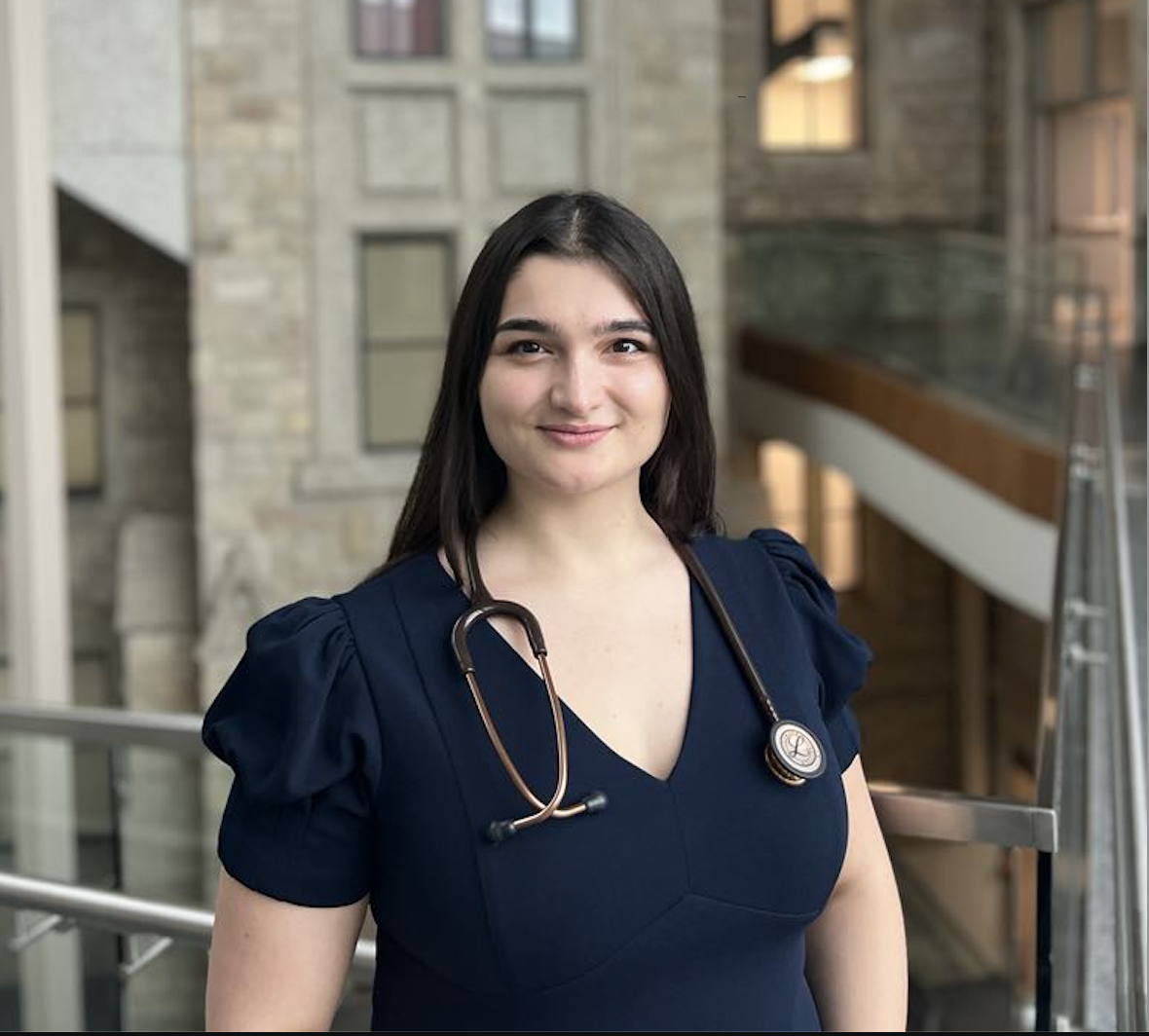
Dear CFMS Members,
I am Mimi Moustapha, M3, and the outgoing CFMS Western Regional Director. I am running for VP Finance, planning to use my previous experience as a CFMS board member as well as the past president of USask’s MedSoc to serve medical students across the country. As a CFMS board member, I have learned a lot about the CFMS budget and can see many areas for further improvement. In addition, during my time as MedSoc president, I was able to turn a $20K debt we inherited from the previous year into a surplus while still preserving the initiatives and events important to students. I also authored new policies to ensure that our accounting records were up to date and accurate, and that budget lines were used for what they were intended for!
My Platform Goals are as follows:
1. Strengthen and Expand Sponsorships to Address Conference Costs and Bolster the CFMS Budget
In consultation with many of the board and student leaders from various MedSocs, it is clear that there is a desire for decreased conference costs or additional financial aid. I plan to work with existing sponsors and reach out to new potential sponsors. In addition, I will work with the communication teams and other portfolios to make sure that students across the country are aware of existing initiatives like the Travel Equity Fund. Furthermore, I plan to evaluate other budget lines to see if there can be potential adjustments to ensure we are allocating money where it matters most.
2. Improve Communication and Tracking of the Budget with Board and MedSocs
- Board: One area I’d like to improve in the CFMS Finance portfolio is transparency and board communication. I would like to keep updated tracking either through Excel or another tracking software, allowing board members to have clear, up-to-date information on the spending in their divisions.
- MedSocs: I will increase communication to ensure that MedSocs are well aware of funding opportunities and initiatives available. I also plan to work to ensure that the spending of these initiatives is properly monitored so that we are guaranteeing that funding is going towards medical students as intended. I will advocate for more time to discuss the budget with MedSocs, whether at general meetings or individually, so each school is fully informed of our budget.
3. Expand on Finance Roundtables with MedSocs
I would like to expand roundtables to learn from each other about different budgets and sources of regional funding. In addition, by comparing and compiling a list of financial resources, I plan to identify areas where we can advocate through position papers and other avenues.
4. Improve Access and Communication Around Discounts
As our website is updated and remodeled, I want to improve usability and ensure that discounts and partnerships are easily accessible by students.
Thank you, and please reach out if you have any questions!
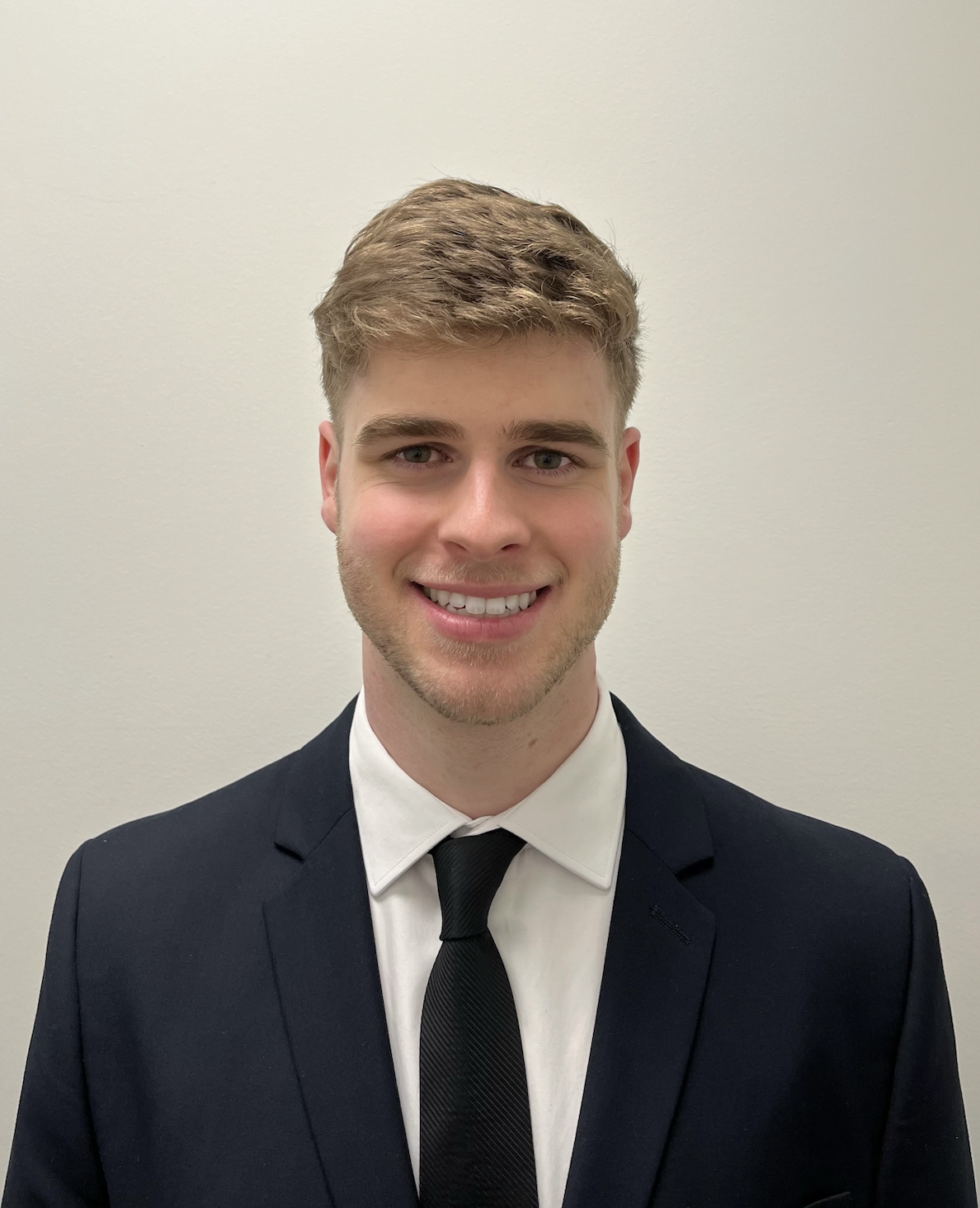
Hello everyone!
My name is Sam Tholl (he/him), and I am thrilled to be running for the VP Finance position! I currently serve as the National Officer of Services for the CFMS under the finance portfolio, a role that has given me firsthand insight into the operational workflow of the CFMS’ finances. Over the past 10 months, I’ve worked closely with the VP Finance, partnering on portfolio responsibilities and gaining a comprehensive understanding of what success in the role entails.
After identifying financial areas for improvement, I secured a $70,000 pro bono consulting contract with Deloitte to modernize the CFMS reimbursement process and enhance organizational performance. While this initiative will deliver impactful change, it also highlighted additional areas of improvement in the finance portfolio that I believe I could further optimize, ultimately motivating me to run for VP Finance.
To meaningfully inform my platform, I’ve consulted extensively with the CFMS President, VP Finance, and MedSoc Presidents, whose perspectives have shaped three core pillars that I intend to address in this role.
Pillar 1: Financial Accountability
- Reimbursement Process: A key deliverable from the Deloitte contract that I secured is to modernize the reimbursement process into a user-friendly, digital system. This project will simplify expense submissions for all CFMS members and enable accurate financial tracking.
- Budget Tracking: Historically, the CFMS has faced challenges in tracking spending and allocating budgets. To address this, I plan to implement a robust budget tracking system for each portfolio, enabling board members to monitor expenses, manage budgets, and reallocate unused funds. The system will also support reporting requirements for CFMS sponsors, reducing the need for retroactive reconciliation and encouraging proactive budgeting.
Pillar 2: Financial Advocacy and Transparency
- Financial Equity Report: As a predominantly internal-facing group, the finance portfolio must evolve to better support external advocacy. To achieve this, I plan to survey all Canadian MedSocs to identify common and school-specific financial challenges. The results will shape a CFMS Financial Equity Report, guiding future advocacy and providing tailored support to MedSocs at financial roundtables.
- Quarterly Financial Updates: With improved budget tracking, I plan to publish quarterly updates outlining how CFMS funds are allocated and spent. Together with the Financial Equity Report, these updates will promote transparency and help identify financial challenges across MedSocs.
Pillar 3: National Student Discount Program
After 10 months of obtaining new and managing existing discounts, it’s clear that the CFMS needs a centralized, streamlined discount program. As VP Finance, I will lead the creation of an online discount platform that will allow CFMS members to access discounts Canada-wide. Having already started implementation of a similar program at UBC, rolling out a centralized discount program is feasible and will reduce confusion about active versus inactive discounts.
The solutions I’ve proposed are realistic, achievable, and designed to make a positive impact within one term. I look forward to strengthening the CFMS finance portfolio and delivering value to all members.
Thank you for your consideration!
Director of Education
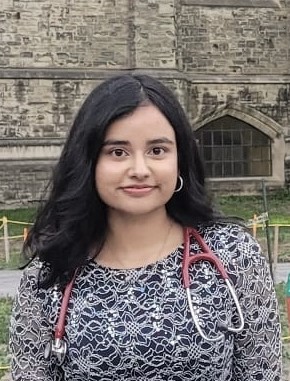
Driven by a lifelong commitment to medical education, EDI, and community partnership, I am well positioned to apply my experience in medical education advocacy to connect, support, and represent you as your next CFMS Director of Education. From piloting a harm-reduction approach to AI for medical education at U of T to amplifying Indigenous voices in peer-reviewed journals, my journey has taught me how powerful student-centered innovation can be—and I want to scale it nationally as your Director of Education!
As someone who has worked at the forefront of curriculum design, educational policy, and student advocacy, I am committed to building an inclusive, innovative, and student-centred medical education system across Canada. I’m deeply involved in medical education at all levels, including research, and most recently I pioneered a harm reduction approach to the integration of AI teaching assistants for use in medical education (currently in press). I advocate for student perspectives at medical education decision tables as the Course Representative of my medical school cohort at U of T, and I am eager to expand my advocacy nationally through the CFMS.
Additionally, I have gained experience in formal curriculum development through my participation in the Students as Teachers program at U of T, giving me a well-rounded understanding of the Canadian medical curriculum from both a student and faculty perspective. Furthermore, I have spearheaded initiatives to increase EDI and accessibility in academia and promoted student scholars through my mentorship on student-led, peer-reviewed, scholarly journals such as the UTMJ and USURJ. My background in such EDI initiatives—such as launching “Disrupting and Expanding the Status Quo”—has equipped me to amplify diverse voices, maintain transparent communication, and implement evidence-based solutions through a CFMS Education Portfolio that empowers every medical student.
Building on Current Initiatives
The CFMS Education portfolio currently offers a number of valuable resources ranging from residency matching resources, toolkits for student-run clinics, and research supports—but gaps remain in structured mentorship, curriculum feedback loops, and structured national research opportunities. My platform builds on existing successes while addressing these key gaps to ensure that our supports are effective, accessible, and highly engaged by medical students.
Based on my experience liaising between medical students and faculty on curriculum changes over the past two years as Course Representative and my experience in medical education research, I propose student-centered initiatives that focus on fostering success through mentorship, a wellness curriculum directly responsive to the needs of medical students, and accessible research and career development opportunities.
Goals
- Mentorship Across Phases: Building on my mentorship experience, I plan to promote better clerkship preparation and learner confidence through the creation of a clerkship mentoring program that matches junior students with senior clerks, helping junior medical students gain experience in clinical environments prior to clerkship. I will host virtual focus groups with medical student leaders, including pre-clerk and clerk representatives, to co-create policy recommendations and resources.
- Learner Wellness Curriculum: As a Course Representative, I know that despite having wellness lectures incorporated into the curriculum, many students are dissatisfied by their delivery. Thus, as the Director of Education, I will implement a streamlined needs assessment and partner with National Officers and CFMS Wellness Committees to create actionable recommendations for revamping the wellness curriculum to better meet student needs.
- National Research Network: I plan to establish a national research program offering short-term summer research placements for medical students wishing to gain exposure to diverse institutions and research teams across the country.
I’m committed to advancing medical education through both innovative new initiatives and tangible improvements to our existing resources. Let’s collaborate to build a more responsive, equitable, and forward-thinking medical education space in Canada—vote Alina for Director of Education!
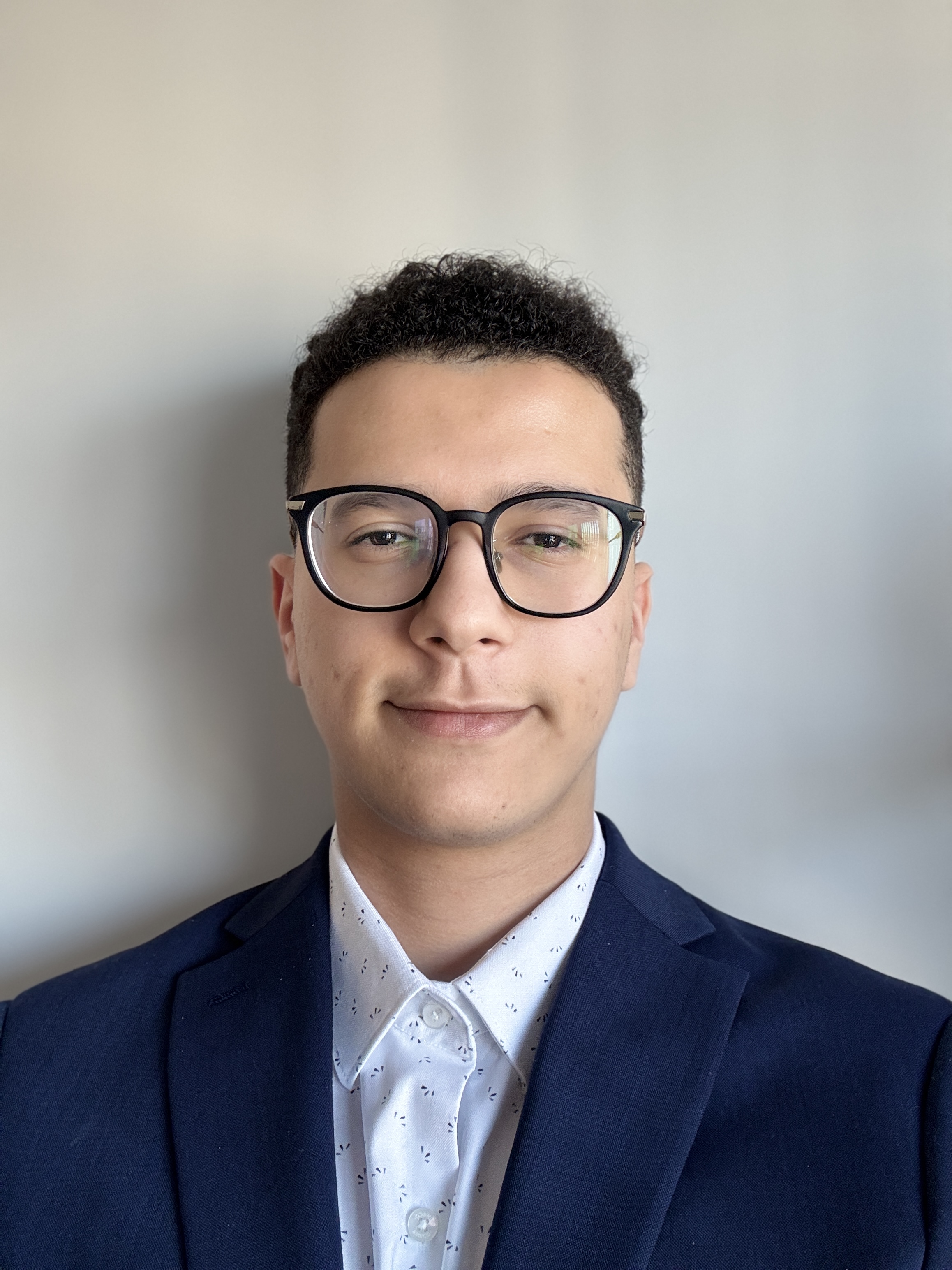
Hello everyone! My name is Anas Arwini (he/him) and I’m a second-year medical student from the University of Saskatchewan. I’m excited to put my name forward for Director of Education! I have a passion for student growth and development, which has inspired me to pursue relevant extracurriculars including mentorship and my role as outgoing VP Academic.
My leadership philosophy is rooted in a mindset of continuous, stepwise improvement. I believe that a successful term builds on the valuable work of past leaders while laying the groundwork for realistic, forward-thinking initiatives to enhance the student academic experience. My platform is shaped by my own experience as VP Academic, collaborating with the current Director of Education, and engaging with other VP Academics across Canada through our Academic Roundtables. In addition to the core Director of Education responsibilities, my envisioned direction for the Education Portfolio is guided by four key facets:
Academic Excellence
- Supporting and integrating new satellite campuses and medical schools into roundtables and academic affairs. As medical schools (e.g., SFU, TMU) and satellite campuses (eg., Grande Prairie, Cape Breton) are established, our goal will be to ensure they are welcomed and meaningfully included in the national dialogue.
- Collaborate with the MSAW to facilitate educational development. As MSAW develops, we welcome them to a seat at the Roundtable along with OMSA and CAMSA to complete the regional representation of Canada.
EDI and Student Support
- Advocate to relaunch the CMA Interview Prep Program. This program is intended to help CaRMS applicants practice interviews but was unfortunately discontinued due to funding constraints.
- Work to cement current position papers (e.g., OR Sterilization and Religious Discrimination) into curriculum documents and accreditation standards to ensure systemic and lasting impacts.
- Based on the EDI Audit, we will work to fully integrate EDI principles and recommendations into our portfolio operations.
- Collaborate with EDI to advocate for religious accommodations (e.g., obligations while fasting for Ramadan and absences for Eid).
Sustainability
- Continue work on a centralized UGME Policy Database to streamline advocacy efforts.
- Strengthen communication efforts so everyone knows what we do and how to get involved. Hosting Town Halls with the collaboration of VP Academics. Providing monthly updates on our activities from our national leads and leadership roles within the portfolio.
- Continuous improvement through feedback. We will work to establish open channels such as internal surveys to regularly hear from students.
- Focusing on internal collaboration. Education is a diverse CFMS portfolio, meaning there are ample opportunities to work with and include other Portfolios in a reciprocal, collaborative relationship.
National Collaboration
- Continue collaborating with the AFMC and other national stakeholders. Following the success of the recent change to the capacity-based model, we will work with student leaders across the country to continue shaping improvements.
Thank you for considering me for the role, and regardless of the outcome, I wish everyone the best in their academic endeavours!

PILLAR: Enhancing National Medical Education Strategy
Strengthening CFMS Representation at National Education Tables
With experience presenting at the CFMS Day of Action and leading a disability project as the Pre-Clerkship Lead on the Education Advocacy Task Force, I understand the nuance of national advocacy. I will champion learner voices in dialogues with AFMC, CaRMS, MCC, and RCPSC, ensuring medical students shape key decisions. My goal is to push forward initiatives like disability-inclusive policies, religious accommodations in clinical spaces, and equity-informed admissions reform.
Supporting the Transitions to Clerkship and Residency
I will work with the Education Committee to expand the CFMS Match Book Guide, advocate for a fair and transparent match process, and collaborate with CaRMS on meaningful student consultation. Moreover, I will collaborate with relevant portfolios in the CFMS to create helpful resources and sessions that aid the transition to clerkship by addressing the prevalent “hidden curriculum” that exists across Canada.
Uplifting the Unmatched
I will advocate for increased transparency from faculties, post-match supports, and expanded eligibility for electives and interviews. Drawing from my experience as PB Academy Rep supporting 60+ students, I understand the importance of timely, compassionate, and actionable support systems for unmatched peers.
PILLAR: Empowering Innovation and Inter-School Collaboration
Fostering Education Research and Teaching Excellence
With experience in medical education research at the Wilson Centre and the Students as Teachers program, I will elevate peer-teaching platforms and amplify funding opportunities for student-led conferences like OSMERC, where I helped secure speakers and improved the program structure. I will also work with the CFMS Research Officers to spotlight innovations in curriculum delivery — like AI, wellness days, and virtual electives.
Streamlining Inter-School Collaboration
I will strengthen the Academic Roundtable and build bridges between VP Academics and CFMS portfolios. As founder of NeuroBridge, a CFMS grant-winning nonprofit delivering 20+ education initiatives across communities, I’ve built systems for pan-institutional collaboration. I will apply these lessons to support national mentorship and cross-school advocacy alignment.
Revitalizing the Education Committee
I will restructure the Education Committee with clearly defined deliverables, consistent collaboration opportunities, and better integration of the Associate Director of Education. Having led a CFMS file and contributed to multiple others, I know how to balance strategic direction with consultative input.
Through my previous CFMS role, I recognized an existing gap in deliverables between position paper completion and implementation. I want to address this gap through an action advocacy committee that picks feasible items from the position papers and works towards implementation across medical schools.
PILLAR: Equity, Accessibility, and Learner Wellbeing
Championing Disability-Inclusive Medical Education
Having led national efforts to advocate for medical students with disabilities, I will continue to push for CFMS-endorsed accommodation guidelines and ensure accessibility is a priority in accreditation and policy conversations.
Advancing Equity in Clinical Environments
I co-authored a policy proposal to safeguard religious expression in the OR through sterile adaptations for attire. As Director of Education, I will advance this initiative alongside a broader CFMS commitment to fostering safer learning environments across lines of identity, ability, and belief.
I’m Ben— I’m a friendly, engaged, and articulate speaker and I will make an excellent Director of Education. My experience with the CFMS, with my own Medical Students’ Society, and in my previous working life makes me the candidate with perspective enough to know the priorities and the matter-of-fact affect that we need for success in our next academic year. Je suis également bilingue — et disponible en français!
I’ve been hanging around the CFMS for a few years now — I sat on the ART for the 2023-2024 academic year and the PRT for the 2024-2025 year. Further to these regular meetings, I was also half of the initial duo that devised the Satellite Campus Working Group and I was the only student on the AFMC committee that redesigned the Travelling Electives Portal (to be implemented this summer, I sure hope it works!).
My experience with my own Medical Students’ Society at Dalhousie is the most relevant experience that I would like you to consider. I’m a student at a satellite campus and I’m the first and only student from a distributed site to have been elected to the Vice President Medical Education and the President positions. I’ve had to work hard to remain engaged with both campuses while also preparing for our third— which opens this fall. Dalhousie has been doing satellite campuses longer than many other schools and the dynamics that have evolved here over the past 15 years are unique in Canada. I believe our experience here is vital to understanding and improving student outcomes as new medical schools and satellite sites open across the country.
Lastly, I believe I have had many, many opportunities to hone my skills— well before starting medical school. I’ve worked in a variety of bilingual public-sector workplaces, from the House of Commons and the Senate of Canada, to municipal government in New Brunswick, and now to our bilingual provincial health authority, Horizon, as a clerk.
Priorities for 2025-2026
- Addressing costs to students
- Improving pre-CaRMS elective availability
- Ensuring quality assurance across main and satellite campuses
As I have outlined, my lived experience touches on all of these. I am not afraid to speak up in direct and kind ways and I hope to have modelled these skills to many of you at different times where we’ve met — at AGM, SGM, ART, PRT, or elsewhere! Thanks for reading.

Hi CFMS members! I'm Emily (she/her), a medical student at uOttawa and your current Associate Education. Over the past year, I've had the privilege of working with many of you through our Education Portfolio team and Academic Round Table, advocating for national student priorities, developing mentorship and match supports, and representing student voices at tables like the AFMC Electives Portal Committee.
Through this work, I've come to love the Education Portfolio not just for what it does, but for what it could do. For example, this year, I introduced a collaborative knowledge sharing document where VP Academics could ask questions, seek advice, and learn how things are done across schools. From this, it quickly became clear that we're all navigating similar challenges—and that we're stronger when we work through them collectively, rather than reinventing the wheel.
These experiences have deepened my belief that this portfolio holds enormous power—not just to produce resources, but to organize, platform, and focus our student voices on the issues that shape our learning and our lives.
If elected as Director, I'll bring an approach capitalizing on this potential—one that focuses on doing fewer things better, working together more strategically, and pushing for systemic changes that students deserve.
1. Impact, Not Just Output
Ensuring our portfolio resources remain useful and accessible to students:
- Conduct an audit of portfolio outputs to determine what's used, what needs updating, and what should be sunsetted.
- Centralize all education resources in one location—either through the CFMS website, or a temporary hub when website improvements are underway.
- Work with VP Academics to circulate key resources—like the Final Year Match Mentorship Program—directly to students at all schools.
2. Coordination, Not Just Communication
Stop working in individual school silos and start building aligned momentum:
- Host a summit in September with VP Academics and all interested students to identify shared concerns and set discrete advocacy goals for the year.
- Redesign the Academic Round Table to function as a strategic, collaborative space with more inclusive discussion formats, student-submitted agenda items, and opportunities to push advocacy goals as a collective student body.
- Create an updated academic policies database compiling key information (e.g., curricular design, attendance, remediation) from all schools to support local and national advocacy efforts.
3. Students, Not Just Systems
Prioritizing national advocacy grounded in student reality—and focused on improving the systems that shape our experience:
- Align with AFMC's 2025 “Rethinking the Final Year of Medical School” priorities to push for reform and standardization in the final year experience, such as standardizing transcript notations, MSPR comments, and match experiences.
- Work with partners to adopt and relaunch the CMA's former CaRMS Interview Prep Program, maintaining it as a free resource for students.
- Ensure students are consulted early and updated regularly on CFMS advocacy at national tables like CaRMS and AFMC—making our work more grounded, transparent, and student-relevant.
This portfolio is already doing good work—but with focus, coordination, and vision, I believe it can do even more amazing things. I’m excited to build that future with all of you!
Hi all! My name is Jesse (he/him), and I’m excited to be running to be your next CFMS Director of Education! I’ll be returning to my third year at the University of Alberta after taking some time off to complete my Master’s and work in Ottawa. Throughout my medical journey, I’ve been quite involved in student leadership, including within the CFMS.
As a learner advocacy organization, I believe education is truly at the heart of the CFMS. Leading the education portfolio offers a great opportunity to contribute to positive change for the over 9,000 medical students across Canada. I have found representing the learner voice incredibly fulfilling so far and I would be honoured to be the CFMS Director of Education and continue to advocate and support medical students across Canada.
As CFMS Director of Education, my goals are:
Educational Advocacy
- AFMC Electives Portal: Advocate for increased capacity, application transparency, equitable timelines, and reasonable application costs.
- Support Academic Round Table (ART): Recognize the role of the ART as a powerful advocacy and collaboration tool, and ensure regularly scheduled and facilitated roundtables.
- Represent Distributed Sites: Ensure all sites are represented by connecting student leaders and facilitating opportunities through regular Satellite Campus Round Tables.
- Maintain and Expand Partner Educational Relationships: Expand collaboration with provincial and national medical organizations (AFMC, CFPC, CaRMS, CMA) to promote Canadian medical students' interests, strengthen CFMS capacity, and advance strategic priorities.
- Collaborate with Student Organizations: Work with organizations like BMSA, CAMSA, CQMSA, FMEQ, IMSAC, OMSA, and MSAW to support shared educational priorities and best represent the learner voice.
Education Portfolio Operations
- Equity Audit Implementation: Review and ensure implementation of recommendations from the Education Portfolio Equity Audit.
- Increased Student Engagement and Communication: Promote student engagement by highlighting CFMS educational successes, offering involvement opportunities, and ensuring lower-entry involvement roles for greater participation.
- Focused and Sustainable Portfolio: Review portfolio member terms of reference to ensure the academic portfolio is focused, sustainable, and aligned with our core mandate.
- Collaborate with Team: Foster cross-portfolio collaboration with Board Members, National Officers, Roundtable Members, and students.
- Strategic Plan Alignment: Ensure the education portfolio is coordinated with the CFMS Strategic Plan 2025-2030.
Educational Supports
- Strengthen Curriculum Data Initiatives: Ensure curriculum and policy data is available for advocacy and curriculum improvements, including developing an open-source database for UGME policies, maintaining interview and elective databases, increasing national annual survey uptake, and enhancing report card-style evaluations.
- Leave and Absences Policy: Work with medical schools and learner partner organizations to develop a CFMS-endorsed standardized leave and absences policy guide for medical schools.
- Onboarding of New Medical Schools: Support new schools (TMU, SFU, UPEI) with academic development.
- Support CFMS in AFMC Match Tender: Advocate for learner priorities, including ensuring learner representation, strong data stewardship, and financial transparency.
- Support for Unmatched Grads: Ensure strong supports for unmatched graduates, including second match stipends, mentorship programs, and wellness initiatives.
- CaRMS Match Tools: Explore updating MatchStats and developing, in partnership with CaRMS, a match statistical probability calculator based on rank order scenarios.

Dear CFMS Members,
My name is Tyler Williamson, MS2 and current Aesculapian Society President at Queen’s University, and I am honoured to be running for CFMS Director of Education. I believe in a nationally collaborative approach to support and protect medical learners, providing them with the opportunity to shape their own education. I would like to continue the CFMS’s strong reputation of student advocacy, working with our national partners to promote the interests and wellbeing of all medical students. I plan to address critical issues facing medical students today.
1. Analysis of Increased Failure Rates & Remediation Policies
Failure rates in medical school have been trending upwards, yet little national data exists to explain why. In consultation with other student leaders, we have identified that many remediation policies are inconsistent or unclear, leading to distress for students. I would form a working group to look at how each school handles remediation. We would consult students affected by remediation, with appropriate student protections, to discover any systemic issues. This will inform data-driven recommendations to reform remediation policies, coordinated with CFMS Student Affairs to support the wellness of affected students.
2. New Medical Schools and Distributed Sites
Canadian medical schools are entering a new era of expansion, and students in new and distributed sites face additional challenges. Program gaps, lack of adequate/comparable services, and increased virtual content delivery all disproportionately impact their learning. Drawing on my experience working with the Queen’s Lakeridge site and speaking with other student leaders across Canada, I would elevate the voices of these medical learners and advocate for equity in curriculum, resources, and experiences across all campuses.
3. Weaponization of Policies and Protection of Advocacy
Students have increasingly become targeted for their advocacy through the weaponization of institutional policies that seek to suppress free speech. A fundamental aspect of medicine is the ability to advocate for someone experiencing hardship, and these acts to suppress free speech undermine this. I will collaborate with all CFMS portfolios to ensure that a student’s right to respectful advocacy and self-expression are protected.
4. Electives Advocacy
Electives are a critical part of medical education and CaRMS preparation. This process has been improved, but more work is needed. Students continue to face scheduling conflicts between institutional rotations and the AFMC elective schedule. I will advocate for more equitable scheduling to ensure all students can equally benefit from electives.
5. Mentorship Opportunities
Many students report difficulty accessing mentorship opportunities, particularly in underrepresented disciplines. I would like to collaborate with the CMA to develop a national mentorship program to connect students with clinicians across disciplines and across Canada, helping students explore diverse career paths and build connections.
I am committed to a CFMS that continually strives to protect and advocate for all medical students. I look forward to serving you all, listening to your perspectives, and working together in building a stronger and more equitable medical education across Canada.
Thank you all kindly,
Tyler Williamson
Director of Student Affairs
Hello everyone! My name is Meera (she/her) and I am running to be your Director of Student Affairs once again.
Firstly, I want to acknowledge that I am writing to you today from Treaty 13 territory, the traditional lands of the Mississaugas of the Credit, the Anishnabeg, the Chippewa, the Haudenosaunee and the Wendat peoples, in what we call Toronto.
I have been involved with the CFMS for two years – first, as the monthly newsletter co-editor and Bilingualism Committee member, and second, as the Director of Student Affairs. It has been such a privilege to work with various CFMS teams these past few years!
A passion for community-building led me to initially apply for this role. Now, with institutional knowledge and experience of the Student Affairs portfolio, I hope to advocate for student wellness as a systemic issue, both at the school and national level. Reflecting on the past year, my vision is that every student has access to the support, resources, and environment that they need to thrive.
1. Addressing Wellness Systemically
- Collaborate with identity-based medical student advocacy groups to review and finalize national, research-based wellness recommendations.
- Advocate for the implementation of these recommendations, both at the school level and in collaboration with the AFMC’s Student Affairs Committee.
- Create accountability scans and reporting mechanisms to ensure that recommendations are implemented meaningfully.
2. Resources and Support
- Update CFMS school-specific resources on the new website, and compile past resources from the Longitudinal Wellness Initiative.
- Host live wellness workshops and webinars on different wellness topics, and make resources permanently available through our website and social channels.
- Advocate for increased funding from the CMA for existing peer support and mentorship programs within each school.
3. Student Engagement
- Centralize Student Affairs resources and campaigns within a dedicated section of CFMS social media and website to promote student awareness throughout the year.
- Implement robust, national feedback mechanisms on student engagement with new programs, building on initiatives piloted last year.
- Promote grassroots engagement with initiatives and resources through wellness representatives, medical societies, and wellness-focused clubs.
4. Career-Long Wellness
- Expand the Safe Spaces initiative to include support and resources during pivotal transitions such as clerkship and residency.
- Develop clerkship and residency transition wellness toolkits covering key topics such as financial wellbeing, social connectedness, role transitions, and more.
My goal is to use the strengths of our community and alumni to foster vibrant and interconnected communities. When working together, we can promote a culture of well-being, for ourselves and future generations of medical students.
Thank you for taking the time to read my platform!
Sincerely,
Meera Chopra
.jpg)
Dear CFMS Members,
I am excited to present my candidacy for the position of CFMS Director of Student Affairs. As a 2nd-year medical student, the outgoing President of the Western University Hippocratic Student Council, and an active member of the Schulich Student Affairs Committee, I have been deeply involved in student health and wellness initiatives at both the organizational and grassroots levels. Through conversations with peers and collaboration with faculty, I’ve identified several under-recognized areas of concern affecting student wellness, including lack of support at distributed sites, gaps in accessibility of services, and financial stressors.
Through my time on the Schulich Student Affairs Committee and as Class of 2027 Representative, I’ve led wellness-focused initiatives such as our London Housing and City resource guides, partnered with wellness groups like Mindful Meds, and facilitated year-end class initiatives. Additionally, in my previous work at the UTM Center for Student Engagement, I created wellness- and academic-focused events and built mentorship programs which taught me the value of structured support systems that meet students where they are. My work has always been guided by a commitment to compassion, collaboration, and actionable change, and these are the values I hope to bring to this role.
If elected, my platform centers on five priority areas:
1. Increasing Engagement for the National Wellness Challenge, CFMS Longitudinal Wellness Initiative, and Safe Spaces
- I hope to partner closely with MedSocs, VP Internals, and wellness reps to increase engagement with national initiatives. This includes increased promotion, tailored school-level support and incentives, and incorporating accessible virtual events.
- The CFMS Student Affairs portfolio is already doing incredible work through these initiatives, and my goal is not only to continue this work but to expand its reach and accessibility.
2. Standardizing Pre-Clerkship Wellness Supports
- I hope to create a national MedSoc task force to develop wellness and resource guides tailored to each phase of medical school, with particular emphasis on support for transitions and at distributed campuses.
3. Addressing Student Mistreatment Through Policy Collaboration
- By collaborating with the VP Education and School Wellness Reps, I hope to synthesize student mistreatment policies and approaches at each school.
- This would serve as a tool to identify policy gaps and coordinate collective efforts and advocate for meaningful improvements in student wellness.
4. Easing the Financial Burden on Wellness
- Student feedback across schools highlights financial strain as a major barrier to wellness.
- I will pursue CFMS partnerships to explore grant opportunities, and I hope to secure group discounts for services such as gym memberships, wellness apps, and nutrition support.
5. Inclusive Wellness Across All Campus Sites
- Wellness should not be centralized.
- I hope to prioritize the needs of students at distributed sites and support integration of the new TMU medical school students through collaborative wellness initiatives that reflect their unique challenges.
Thank you for considering me as your candidate. I am ready to listen, collaborate, and lead, with the shared goal of building a more inclusive, supported, and resilient medical student community.
Sincerely,
Taliya Rizvi (Western University c2027)
Director of Government Affairs and Advocacy
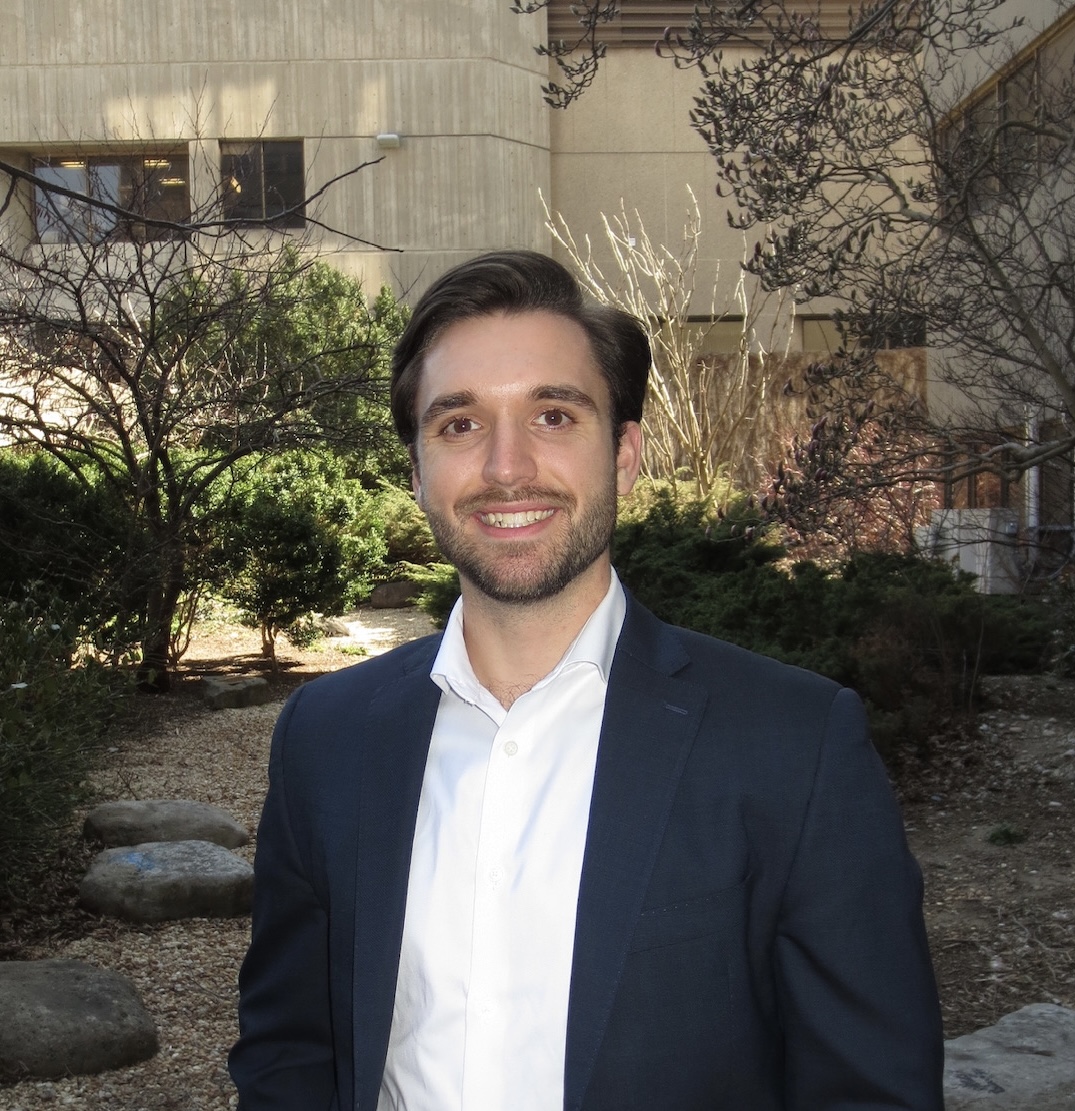
My name is Alan Michaud, and I am a medical student from the Schulich School of Medicine & Dentistry at the University of Western Ontario. I am honoured to be sharing my platform for the position of Director of Government Affairs and Advocacy (GAA).
Strengthening Longitudinal Advocacy Impact
I propose evolving one of the yearly NDoA asks into a multi-year advocacy campaign, allowing for deeper impact, stronger relationships with policymakers, and the ability to track long-term progress. This approach better mirrors real-world advocacy, teaching students to manage longitudinal relationships.
Example:
- Year 1 — Propose policy & raise awareness
- Year 2 — Follow-up, expand, adjust
- Year 3 — Continued engagement & implementation
To support this vision, I propose designating the National Officer of Political Action Follow-Up as a two-year position, using a Jr/Sr model to foster continuity and mentorship within our advocacy leadership.
Supporting and Expanding Medical Student Representation
We are at a pivotal moment with the emergence of two new medical schools: TMU and York University. We should seize this opportunity to support their incoming students in building Medical Student Societies rooted in leadership, advocacy, and good governance.
I propose having GAA team meet with the TMU and York student bodies and administration through virtual and in-person meetings hosted by GAACs to help establish foundational governance structures, bylaws, policies, and terms of reference. I also propose increasing funding to support the in-person meetings. We will be able to support our peers while introducing the CFMS early on as a community and resource they can join and contribute to.
Enhancing CFMS GAA Recruitment and Visibility
Hosting in-person and virtual info sessions and Q&As at the start of each CFMS recruitment cycle. Increased funding for CFMS leaders and GAACs to visit schools to give presentations, share personal stories, highlight initiatives like NDoA, MEDoA, and LATS, and demystify how students can get involved. By making the CFMS feel personal and welcoming, we foster a stronger, more inclusive community of advocates.
Improving Internal Collaboration and Project Efficiency
The GAA portfolio takes on ambitious projects with complex timelines—and our teams have done incredible work despite the challenges faced. To enhance our efficiency, I propose adopting a free project management tool like Monday.com to streamline operations. This would improve transparency, task coordination, and resource allocation while improving asynchronous engagement. Stronger infrastructure would mean more impactful outcomes and better support for the passionate students driving our work forward.
Building Stronger Institutional Partnerships
Organizations like the CMA, CFPC, OMA, AMA, NCCPH, MDFM and others have generously supported us through funding, speakers, and training. I’d love to invest in these relationships through more educational roles to better engage them in our mission so they continue to see our success as their own – encouraging increased collaboration and funding.
Examples:
- CIHI, IHPME, and PHAC training sessions on writing policy papers.
- OMA, Doctors of BC, AMA, MDFM presentations on financial planning and strategy for medical students, residents, and physicians.
- CMA healthcare advocacy training sessions.
Thank you for your consideration.
Alan Michaud
[email protected]
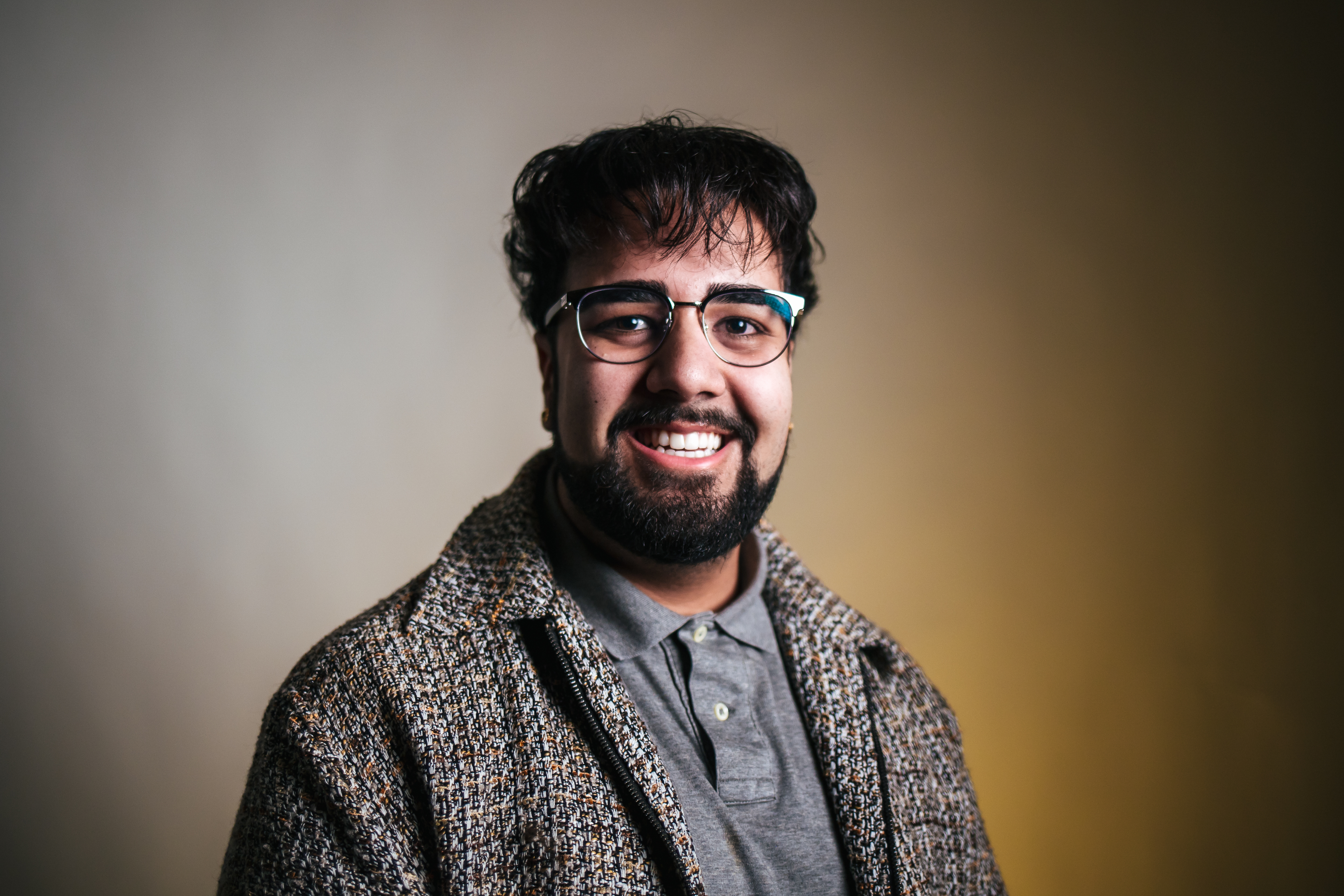
My name is Eshan Arora, and I am the Class President for Dalhousie Medicine’s Class of 2028 (Nova Scotia). I’m running for Director of Government Affairs because I believe medical student voices should not only be heard—but embedded—within the structures shaping healthcare policy and education in Canada.
Governance & Advocacy Experience
I bring extensive experience in governance. For the past three years, I’ve represented over 21,000 students on Dalhousie’s Board of Governors and Senate—where I have helped shape academic policy, reviewed fiscal operations, and upheld fiduciary duties. I’ve also served on university-wide task forces addressing racialized violence, accessibility in course design, and inclusive pedagogies.
Regionally, as Co-Founder of BforKai—an advocacy initiative launched after the tragic passing of 19-year-old Kai Matthews due to Meningitis B—our coalition successfully pushed the provincial government to expand vaccine coverage for students, a testament to how collective advocacy saves lives.
Integrating Med-Student Voices in Parliament
As Dalhousie’s MedVotes Representative, I’ve seen how quickly the political landscape shifts. A core pillar of my platform is securing formal medical student representation on federal parliamentary and Senate-level committees. While graduate students are often invited to national STEM/research policy panels, medical students—despite being future frontline providers and health systems leaders—are largely excluded.
While advocacy through letters and lobby days is important, securing permanent voting seats on standing committees provides continuous, structural representation. Through my work with the Canadian Network of Equity & Racial Justice (CNERJ)—a trilateral body formed by the U.S. Secretary of State and the Canadian/Mexican Ministers of Foreign Affairs—I successfully advocated for student inclusion in cross-national equity dialogues, and will bring that same strategic drive to federal policy-making in Canada.
Supporting Regional Advocacy Efforts
Another core pillar of my platform is strengthening regional advocacy through consistent Provincial Days of Action. Too often, provincial-jurisdiction rooted issues are brought forward federally, limiting impact. CFMS must better support Regional Directors with the resources, mentorship, and funding needed to engage local governments effectively. I’m committed to working with the CFMS Board to ensure every province is equipped to lead high-impact advocacy as new campuses emerge with region-specific needs.
Advancing IDD-Inclusive Medicine
I’m particularly committed to improving care for individuals with Intellectual & Developmental Disabilities (IDD). As a Board Director of Prescott Group, I’ve witnessed systemic barriers in healthcare access and training. As the Founder and Medical Chair of Dalhousie’s American Academy of Developmental Medicine & Dentistry (AADMD) Chapter, I’ve worked to address ableism in medicine by improving student exposure and competency in caring for patients with IDD and filed for a new Anti-Ableist Care MCC Objective. If elected, I will champion efforts to elevate IDD-inclusive care nationwide.
Open-Door Model of Advocacy & Accountability
While this issue is close to my heart, I recognize no single advocate can—nor should—set the full agenda. I’m committed to an open-door model of engagement, where any learner—through a standing form, one-on-one meeting, or email—can share ideas and receive support through CFMS frameworks and advocacy networks.
In a time of political scrutiny, I remain unwavering in my belief that EDIA must remain central to advocacy, and will continue to boldly champion systemic inclusion as a non-negotiable value across all efforts.

Dear CFMS Members,
My name is Leah Schwartz, and I am a second-year medical student at the University of Manitoba. It’s a privilege to present my candidacy for the role of Director of Government Affairs and Advocacy (GAA). Given my strong background in leadership and advocacy, and a deep commitment to improving the medical student experience, I am well-equipped to direct meaningful change for Canadian medical students.
Relevant Experience
I completed my Master’s at the University of Chicago, where I was one of the first Master's Student Representatives at the Pritzker School of Molecular Engineering. In this position, I advocated for greater recognition of the Master’s program and a seamless integration into the pre-existing graduate school. This work catalyzed the creation of their new Master’s program, intentionally redesigned to provide students a unique identity on campus.
As the Academic Representative for my medical school class, I engage with pre-clerkship and curricular committees, advocating for student needs. This includes highlighting the necessity for a generalist-focused curriculum, advocating for stronger clinical skills preparation, and helping to re-shape the exam deferral policy to better support religious and other sanctioned absences.
This year, I served as the CFMS National Officer of Medical Advocacy within the GAA portfolio, planning and running the most successful Medical Education Day of Action (MEDoA) yet. This involved leading research and planning committees, collaborating with other Portfolios, and directly communicating with medical education leaders (including Deans and the CMA president).
Increase Accessibility and Awareness
To encourage engagement with and accessibility of GAA initiatives, I will work to strengthen the connection between the Portfolio, local student advocacy leaders, and the general medical student population. This will involve:
- Standardization of the GAA Committee (GAAC) Representative position.
- Early collaboration to ensure each school is represented at GAAC roundtables.
- Transparent and consistent communication with GAACs and medical student societies.
Reinforcement of the relationship between the portfolio and individual schools will facilitate accountability amongst student leaders and help to promote CFMS GAA opportunities to all interested medical students.
Inclusivity-focused Collaboration
I recognize the pressing need to advocate for inclusive practices in medical education and training, whether that be national standardized religious observance policies or constructing clear guidelines on religious wear and sterility. I firmly believe that the key to addressing this necessity is through the integration of portfolios working towards a common goal.
At present, student wellness initiatives are largely siloed into different portfolios, each working separately alongside each other. The incorporation of Student Affairs and Education Portfolios with GAA presentations and discussions at the 2025 MEDoA demonstrated the effectiveness of intentional collaboration in driving meaningful reform.
A Call to Action
I am dedicated to empowering students, advocating for their needs, and serving their interests. If elected, I will use my leadership skills, advocacy experiences, and CFMS background to strengthen the voices of Canadian medical students and drive meaningful change. Together, we can improve medical education and healthcare across Canada.
Thank you for your consideration,
Leah Schwartz
[email protected]

Relevant Experiences
- (2024-25) I served as Associate Director of GA, working closely with our incredible Dir. GA and our amazing National Officers on planning and leading the National Day of Action (NDoA, Ottawa) and the Medical Education Day of Action (MEDoA, Halifax).
- (2023-24) I worked on the 2023 NDoA Follow-Up and 2024 Planning Committees. With support from a Member of Parliament, we published a petition on the House of Commons website calling for government action on food insecurity. To inform our 2024 advocacy on healthcare spending, we consulted physician leaders, medical associations, and policy experts.
- (2021-2023) I led a team of 37 volunteers at a student-run free clinic at Yale. I worked on campus outreach to advocate for the expansion of Medicaid to include all children in Connecticut, regardless of insurance or immigration status. In 2023, we expanded the Medicaid coverage limit from 12 years old to all children under the age of 15.
- (2021) With the support of an MPP, our petition to include mental health care inclusion in the Ontario Health Insurance Plan (OHIP), gathered over 10,000 signatures and was presented to the House of Commons.
- (2021) I built partnerships with women’s shelters, crisis helplines, and universities to create a national network of NGOs targeting gender-based violence. Our coalition provided GBV survivors easier access to free resources and support.
Goals
1. Strengthen National Advocacy Capacity
- I will expand hands-on advocacy training by encouraging GAAC reps to a) actively promote LATS and b) coordinate advocacy training sessions with PAT for students partaking in their Provincial Days of Action.
2. Increase Participation Equitably Across Schools
- I aim to grow the team representation in a geographically manner across GA Committees. Building off of our amazing successes of this year, I will continue to seek Day of Action funding from past partners like the CMA such that students from across the country can lead or participate in NDoA, MEDoA, and PDoAs with minimal financial strain.
3. Facilitate Inter-provincial Knowledge Sharing
- I plan to build a centralized, accessible platform where GAAC reps and MEDoA participants can share outcomes, challenges, and themes of their provincial Days of Action as well as their provincial amedical education. This will allow us to recognize regional priorities, align our efforts, and amplify impact through shared learning.
4. Improve Continuity and Strategic Planning
- I will formalize documentation and knowledge-transfer systems, including centralized tracking of advocacy priorities and updated onboarding materials. Our goal is to make institutional memory a strength, so future GA teams can have efficient turnover each July.
Conclusion
Having spent the past two years working in the GA portfolio, I know this is the place I want to contribute to for years to come. As Director, I’ll bring experience, structure, and heart to this role—and continue building a GA Division that is inclusive and impactful for every student involved. I would be honoured to serve you next year as Director of Government Affairs.
Director of Global Health
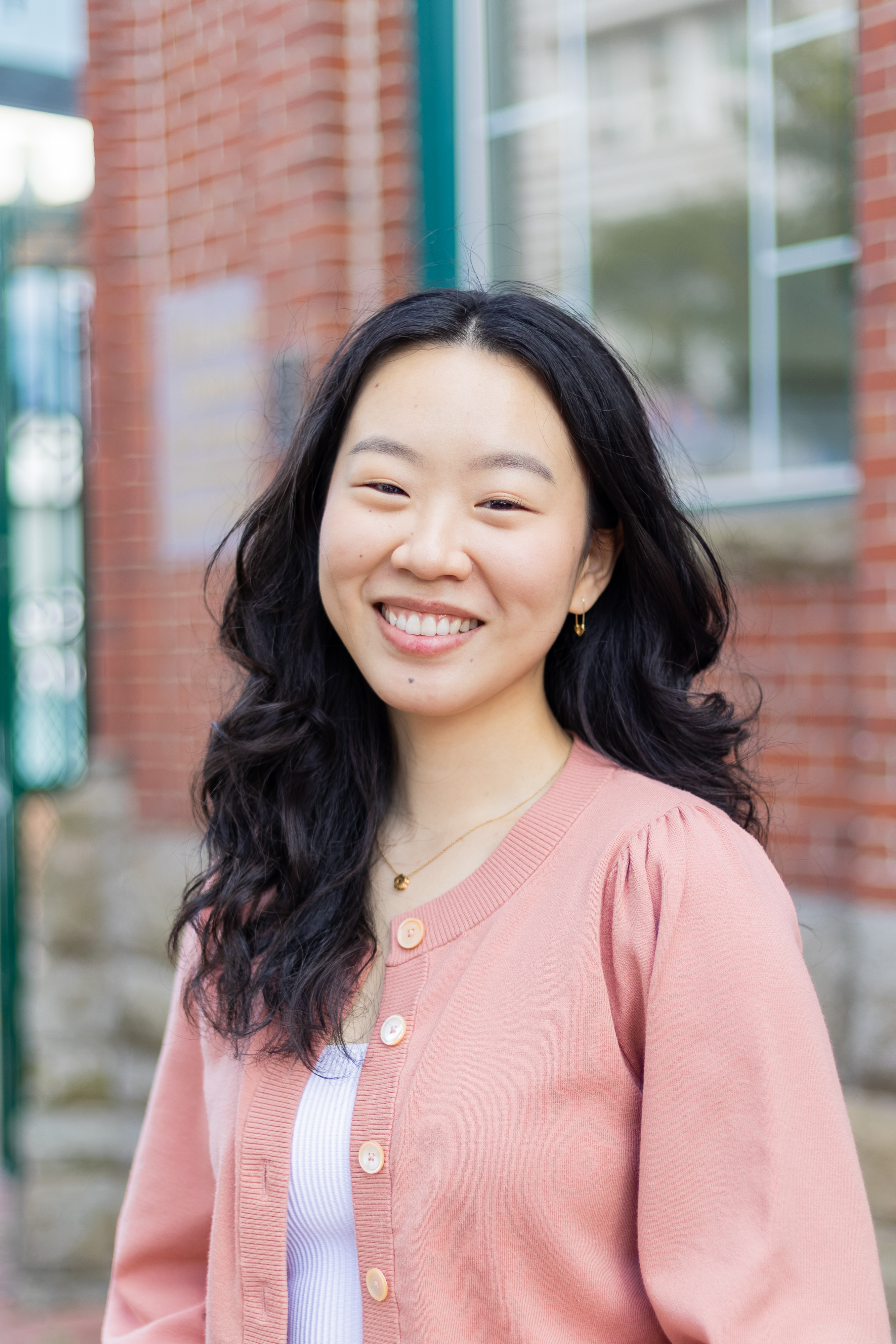
To my fellow CFMS Members,
In the past two years, I have served at both the local and national levels of the CFMS global health portfolio, seeing firsthand the impact that our global health committees have made on their communities. As the largest portfolio at the CFMS, comprising 200+ personnel, we are the portfolio with the most impact but also the greatest space for growth.
Leveraging my time as a Global Health Liaison and Associate Global Health, I have reflected upon the most important contributions I can bring to the global health portfolio to address our areas for improvement:
1. Streamlining Canadian Access to International Opportunities
- The Global Health portfolio represents Canadian medical students at the International Federation of Medical Students (IFMSA) and is responsible for increasing access to international opportunities. My goal is to streamline access to our exchange program by expanding social media outreach, exchange mentorship, and launching online collaborations with our exchange partners. I further aim to leverage Canada’s research strengths to increase our reciprocal research exchange positions abroad. To enhance our departure process, I plan to redesign our pre-departure training with a focus on cultural competency,decolonization, and anti-saviorism.
2. Equity, Diversity, Inclusion, and Decolonization (EDID)
- Each CFMS portfolio is responsible for EDID, and I will build on this year’s work by establishing an open-access policy within Global Health. This includes an archive of workshops and resources on CFMS channels for asynchronous access across time zones and busy schedules, with alternating event start times for equitable access year-round. Drawing on insights from this year’s Indigenous Health roundtables, I am prepared to work in collaboration and support our Directors of Indigenous Health on initiatives in their portfolio. My priority areas for the year are newcomer health, trans health, and rural/remote medicine; all of which I intend to implement publicly accessible progress trackers to keep our portfolio accountable on deliverables.
3. Nationwide Projects and Strong Local Integration
- The CFMS global health portfolio comprises Global Health Liaisons and Local Officers (LOs) at each school, whose involvement in national projects I aim to expand. I propose more unifying events such as the National Rural Health Week that integrates local projects into shared initiatives, fostering collective advocacy for our priority areas. Many programs currently have independent LOs without a National Officer, leaving them without roundtables or channels to voice concerns. I will implement regular roundtables for these LOs to facilitate continuous direct communication with global health leadership and foster a stronger sense of community to support the incredible work they do.
I hope that through these points, my passion for the CFMS Global Health portfolio will resonate with you and the future you wish to see for Canadian global health efforts. I strive to create more welcoming collaborative environments for students at all levels of global health experience, and I hope you will support me in my vision of a stronger, inclusive space for global health work nationwide.
Sincerely,
Jenny Xinye Hu
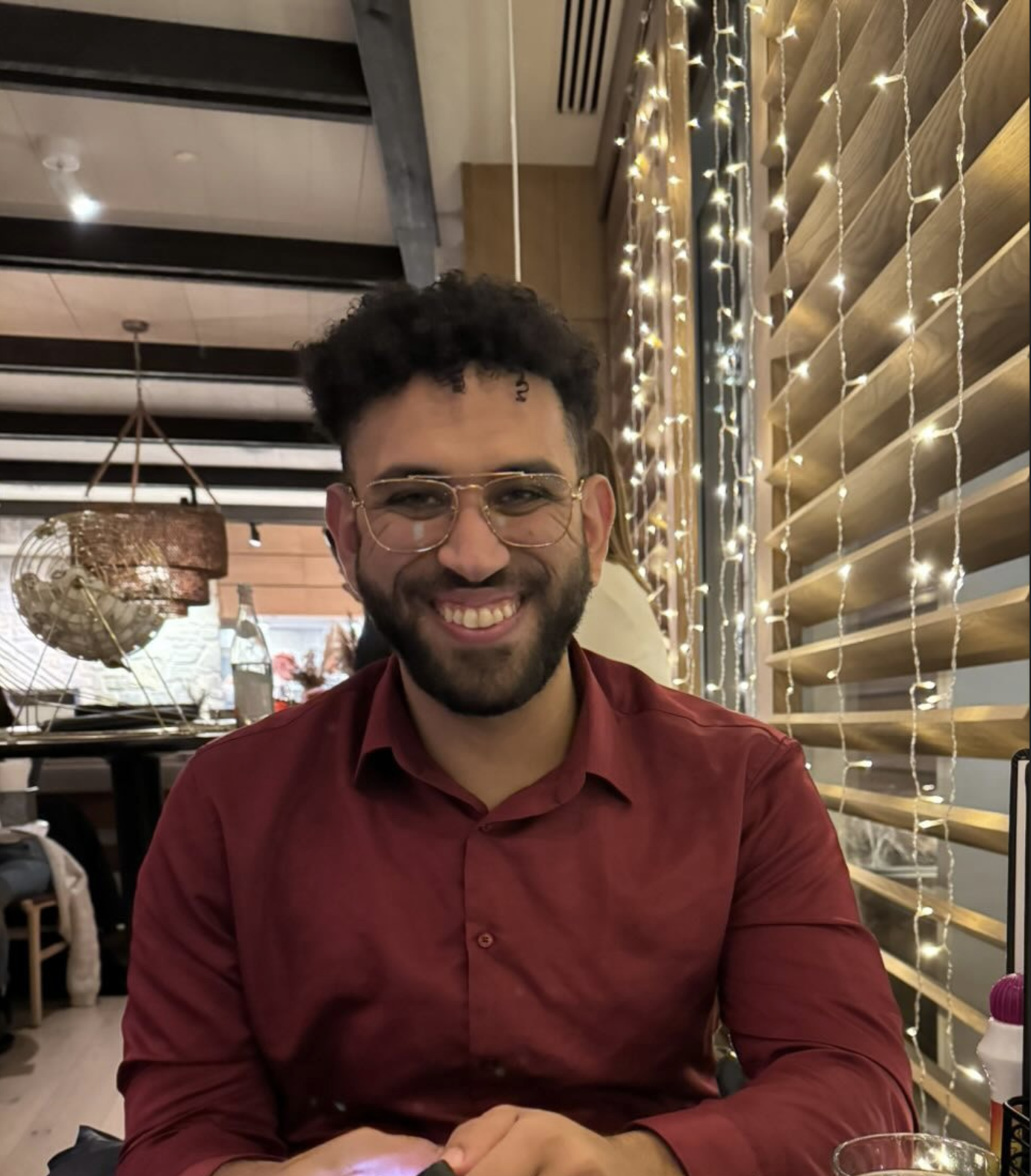
Dear CFMS Members,
My name is Jeremiah Philips, an incoming third-year medical student at Dalhousie University. Like many students, my exposure to global health began through volunteering and asking questions: Why do some communities face more barriers to care than others? How can we use our education to drive impact—both locally and globally?
These questions led me to work with nonprofits supporting unhoused individuals and co-found a nonprofit called Vision For Life. In medical school, I continued this path by volunteering on the Public Health Committee, participating in an IFMSA exchange, and serving as both Global Health Liaison and Local Exchange Officer.
Through these roles, I’ve seen the potential of the Global Health Portfolio and the gaps that remain. I’ve experienced the joy of helping students access global and local opportunities and the frustration of navigating unclear processes. I’ve spoken with classmates eager to contribute but unsure how, with local officers whose projects stall due to limited support, and with physicians who want to share their experiences but lack the avenues to do so.
I’m running for Director of Global Health because I believe we can do better by building a more connected, accessible, and empowering program for all Canadian medical students.
Strengthening Communication and Collaboration
- Connecting the Country: Create a space for Global Health Offices to share tools, co-host events, and support one another—so no one has to reinvent the wheel.
- Encouraging LO-GHL-NO Synergy: Strengthen communication between GHLs and National Officers to help Local Officers expand their impact through collaboration and guidance.
- Increasing Exchange Visibility: Develop an accessible database of both IFMSA and non-IFMSA global health opportunities.
Expanding and Optimizing Programs
- Growing the Exchange Program: Build on the successful relaunch by increasing participation and diversifying destinations so more students benefit.
- Launching a National Case Competition: Host a fun, low-barrier competition open to students nationwide to engage in global health problem-solving and interdisciplinary teamwork.
- Highlighting Global Health Careers: Use newsletters and events to highlight global health paths—like surgery and anesthesiology—so students see themselves in this space.
Strengthening Foundations for Sustainability
- Preserving Institutional Memory: Expand the resource bank with event guides, contacts, and onboarding materials to ease transitions and support continuity.
- Collaborating with Outgoing Leadership: Work with the outgoing Director of Global Health to identify improvement areas and clear priorities.
- Collaborating Across CFMS: Partner with portfolios like Government and Student Affairs to integrate global health themes CFMS-wide.
Centering Equity and Access
- Partnerships: Promote partnerships with BMSAs and Indigenous student groups and reduce participation barriers—especially where representation is limited.
- Student-Driven Improvements: Create feedback channels to ensure the portfolio evolves with student needs and ideas.
Over the past few years, I’ve committed myself to learning, listening, and leading. I’ve seen what’s possible when passionate people are equipped with the right tools and support. As Director of Global Health, I’m ready to build on that foundation and help grow a program that empowers Canadian medical students.
Sincerely,
Jeremiah Philips
Director of Indigenous Health
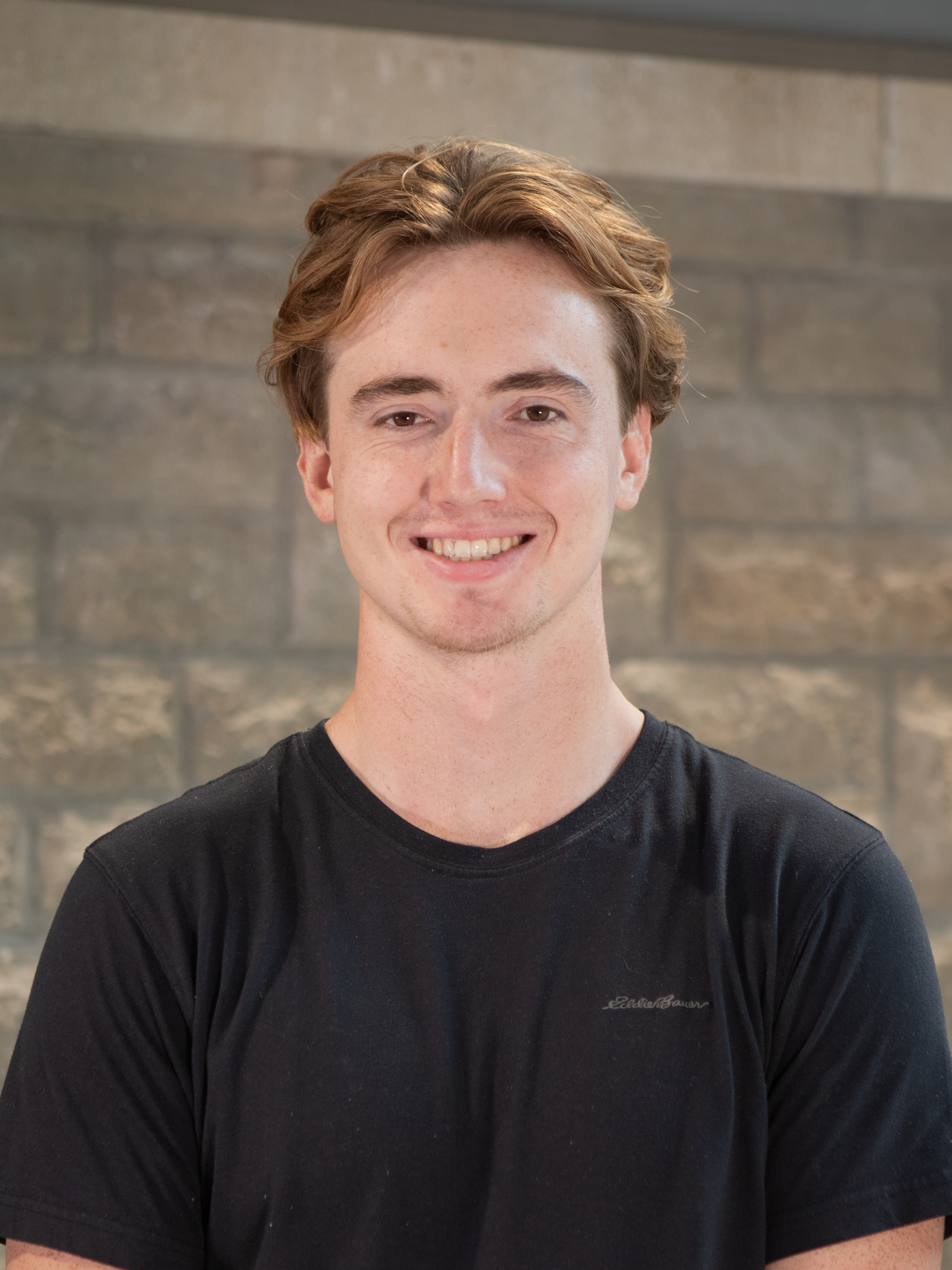
As an Indigenous medical student and former youth program leader, I am grounded in the responsibility to uplift our communities through representation, advocacy, and relationship-building. If elected as CFMS Director of Indigenous Health, I will focus on three strategic pillars: Empowerment, Accountability, and Representation. These pillars reflect our shared commitment to reconciliation, student-led advocacy, and sustainable change.
First: Empowerment – Strengthening Indigenous Health Leadership Across Canada
- Facilitate regular meetings and knowledge-sharing sessions among Local Officers of Indigenous Health (LOIHs), with at least two national LOIH roundtables per year.
- Develop an “LOIH Starter Toolkit” to help new LOIHs transition smoothly into their roles, including templates, examples of successful school initiatives, and cultural safety guidelines.
- Organize an in-person Indigenous Health Portfolio (IHP) gathering at the CFMS AGM to foster collaboration, cultural connection, and strategic goal-setting.
- Create a national database of Indigenous health-related opportunities (conferences, research, mentorship, scholarships) accessible to all CFMS members.
Second: Accountability – Aligning with Truth, Reconciliation, and CFMS Strategic Goals
- Review and update the CFMS Indigenous Health Advocacy Toolkit in consultation with Indigenous students, Elders, and LOIHs, ensuring it reflects current realities and Calls to Action from the Truth and Reconciliation Commission.
- Advocate for mandatory Indigenous cultural safety education and Core Competencies in all Canadian medical schools, working with local student leaders and faculty committees.
- Lead an environmental scan of Indigenous health initiatives across CFMS member schools and publish a summary to identify successes, gaps, and collaborative opportunities.
- Work closely with the CFMS General Manager to secure sustainable partnerships and funding to support Indigenous-led health initiatives.
Third: Representation – A Strong, Visible Voice for Indigenous Medical Students
- Represent CFMS on national Indigenous health committees, including the National Consortium on Indigenous Medical Education, and advocate for equitable representation in medical education reform.
- Ensure that Indigenous medical students are consulted and included in all CFMS policy development related to equity, diversity, and inclusion.
- Create pathways for Indigenous medical students to speak at CFMS General Meetings and national conferences, sharing their experiences and solutions.
- Maintain ongoing communication with the Indigenous Health Committee through quarterly reports, transparent decision-making, and inclusive leadership.
To Close
This platform is rooted in the understanding that Indigenous health is not a single issue—it is interwoven with justice, culture, education, and empowerment. As Director, I will serve not only as a liaison but as a listener, advocate, and action-taker. Together, we can create systems that reflect the strength and sovereignty of our Nations and support the next generation of Indigenous physicians fostering greater equity in Canadian healthcare.
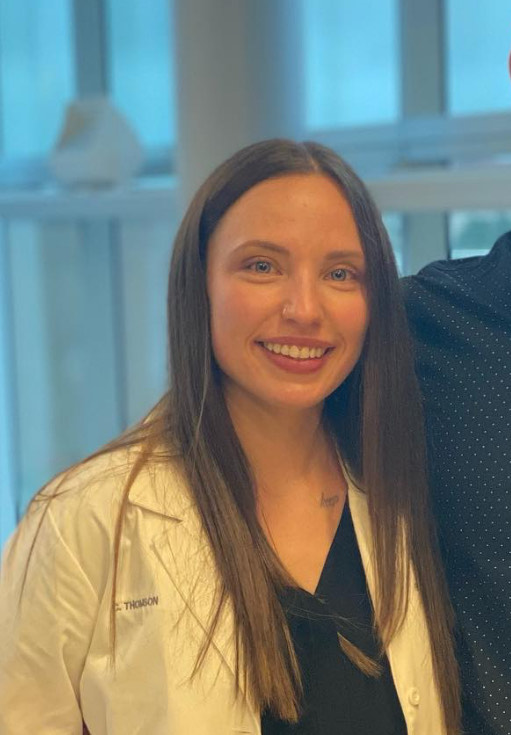
I am a proud Indigenous medical student with a deep commitment to advocacy, representation, and improving health outcomes in Indigenous communities. My qualifications for this position reflect a dedication to this work: I am a former Youth Atlantic Representative for the National Association of Friendship Centres, and a former Indigenous Representative on the Diversity, Equity, Inclusivity, and Reconciliation (DEIR) Council with Eastern Health (NL). Most importantly, I have hands-on experience providing medical care in northern, rural, and Indigenous communities.
Currently, I serve as the Atlantic Regional Director with the Indigenous Medical Students’ Association of Canada (IMSAC), and I am a student member in good standing with the Indigenous Physicians Association of Canada (IPAC). I am also the facilitator of the Memorial University (MUN) Indigenous Health Interest Group, and the Indigenous medical student representative on the Indigenous Health Advisory Board at MUN/Eastern Health.
If elected as one of the Directors of Indigenous Health, I will prioritize the following goals:
1. Strengthen CFMS–IMSAC Collaboration
I will work to reinforce the relationship between CFMS and IMSAC, ensuring that the voices and needs of Indigenous medical students across Canada are both heard and acted upon at a national level.
2. Advance TRC Calls to Action in Medicine
In collaboration with the CFMS Indigenous Health Committee, task forces, and working groups, I will support initiatives that increase Indigenous representation in medicine and advocate for culturally safe, anti-colonial medical education that incorporates Indigenous health core competencies.
3. Support Local Leadership & Engagement
Through strong communication with Local Officers of Indigenous Health (LOIHs) and CFMS members, I will ensure that community-led perspectives guide national strategies and that local efforts are amplified and supported.
With my past and ongoing leadership in Indigenous health, I bring experience, authenticity, and established partnerships that align with the CFMS Strategic Plan. I am ready to represent Indigenous medical students and the CFMS at local, provincial, and federal levels, and to help shape a more equitable and inclusive future in Canadian medical education.
Western Regional Director
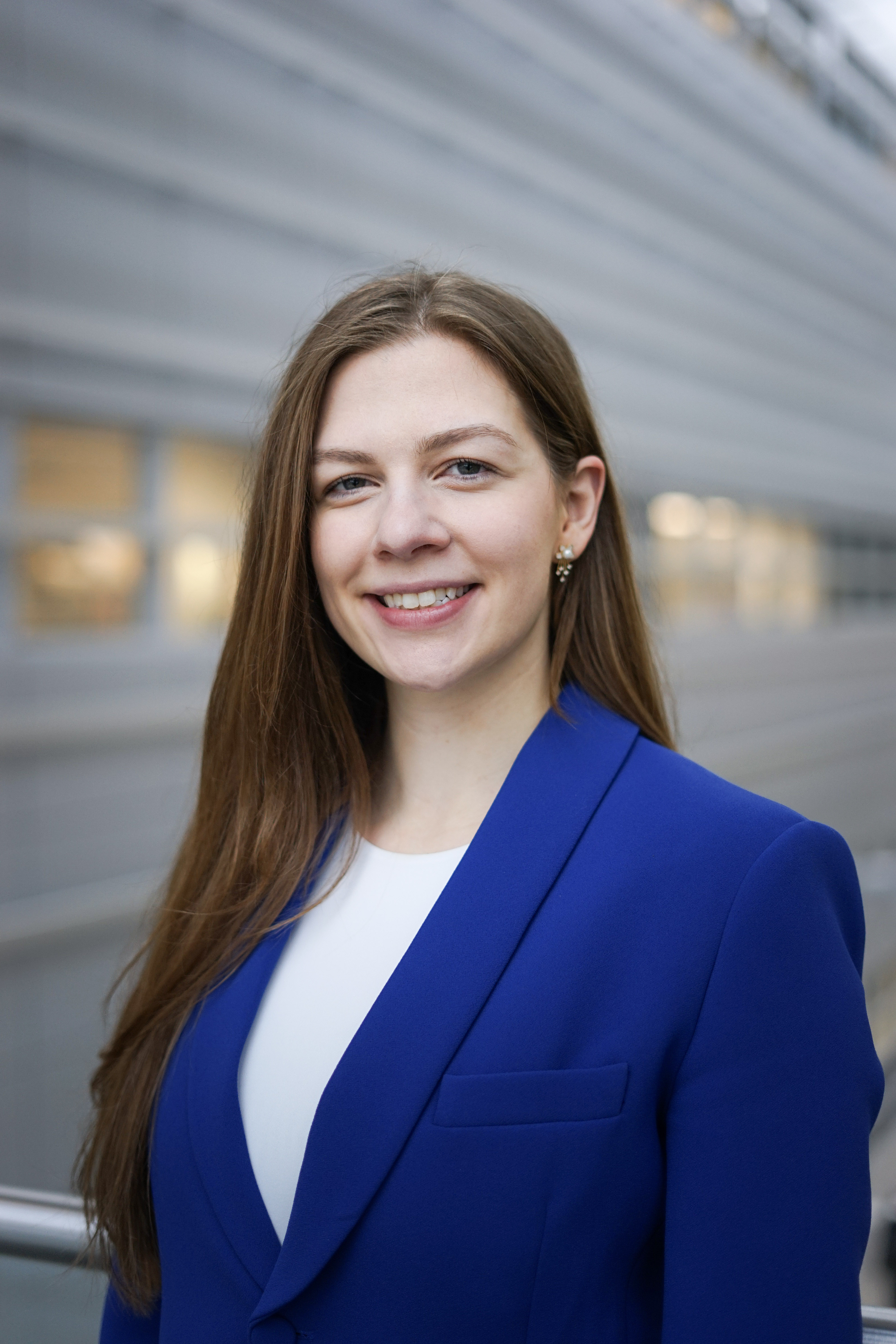
Hello everybody! My name is Carolyn Horwood (she/her) and I am a Class of 2027 student at the University of Calgary (UofC)! As President of the UofC medical student society, I am passionate about improving the lives of medical students in Western Canada, and hope to continue this work as Western Regional Director (WRD). If elected, I aim to:
1. Medical Students Association of the West (MSAW) Implementation
As lead of the MSAW governance task force, I intend to use the support provided as WRD to expand the implementation of MSAW. MSAW will focus on reducing barriers that Western medical students face in connecting with other medical schools. Further, the MSAW will work to equip students to effectively engage with healthcare policy and systems-level provincial and inter-provincial advocacy.
2. Advocate for Western Visiting Elective Funding Program
A major initiative of my term as WRD will be to advocate for a stipend program for Western medical students to attend visiting electives at the other Western placements, including rural placements. I have already discussed and received support for this proposal from the Associate Deans of UofC, UofA, USask, UBC, SFU, and UofM.
3. Support Student Advocacy at the 2025 Western Dean’s Meeting (WDM)
With the upcoming WDM occurring in Calgary, I will focus on advocating for issues brought forth by other Western medical students, including implementing clear student protest and advocacy policies and clarifying student promotion criteria.
4. Promote Indigenous Language Initiatives
I have heard from Indigenous students and faculty that Indigenous language erasure is a major part of ongoing cultural erasure. A focus of my term will be advocating for projects promoting Indigenous naming and language integration at Western medical schools, including ensuring appropriate compensation for community time.
Please reach out if you have any questions!
With warmest wishes,
Carolyn Horwood

Hello everyone! My name is Henry and I am excited to re-run for the Western Regional Director position for the 2025-26 term. I’m an incoming MS3 at the University of Alberta with extensive experience in student governance, student advocacy, and project management. With 15+ publications and a recipient of several awards and grants, I’ve demonstrated proficiency in meeting project deadlines, managing competing objectives, and driving meaningful results. I’m passionate about advancing medical student wellbeing and strengthening collaboration across the Western Region, and I’m eager to continue this important work.
Key Points of My Platform:
1. Improving CFMS Engagement with Western Region Medical Students
- Attend orientation tours to introduce incoming students to the CFMS and its opportunities.
- Improve access to involvement by providing onboarding training and concise overviews of CFMS initiatives.
- Expand the Western Medical Students Summit—an initiative I launched last year—to increase networking and learning opportunities.
- Continue developing the Medical Students Association of the West (MSAW), which I also founded, to better unify student voices across the region.
2. Improving CFMS Engagement with Western Region Medical School Associations
- Host more ad-hoc/roundtable meetings amongst Western Region’s MSA executives to discuss timely concerns and foster a closer relationship between CFMS and Western Region MSAs.
- Meet with each Western Region medical society at least once per year.
3. Improving Wellness Support Services for Students
- Collaborate with Undergraduate Medical Education (UME) to improve mistreatment reporting processes and ensure proper follow-up and accountability.
- Advocate for increased clerkship stipends and improved support for rural electives, including enhanced funding and access to quality clinical opportunities.
Thank you so much for considering me for this position!
Sincerely,
Henry
Hi all! I’m Jesse (he/him), and I’m thrilled to be running for CFMS Western Regional Director! I’m heading into my third year at the University of Alberta after time off to complete my Master’s degrees and work in Ottawa. I’ve enjoyed being involved in student leadership, especially within CFMS, and would be honoured to continue advocating for Western medical students and the 9,000 CFMS members across Canada.
As Western Regional Director, my goals are:
Represent Students
- Western Dean’s Meeting: Leverage this event through advanced planning for learner advocacy by promoting a unified approach to key issues like absence policies, accommodations, and student leadership recognition.
- Medical Student Association of the West (MSAW): Support the development of MSAW by securing start-up funding and fostering early collaboration with CFMS.
- Western Medical Student Summit: Expand the Western Summit by integrating with MSAW, offering research presentation opportunities, and providing career development programming.
- Western Round Table: Provide opportunities for collaboration and planning on interests and concerns of Western medical schools via regular meetings and a group chat.
- Represent Distributed Sites: Ensure all sites are represented by connecting student leaders and hosting regular Satellite Campus Round Tables.
Support CFMS
- CaRMS Match Tools: Explore updating MatchStats and developing, in partnership with CaRMS, a match statistical probability calculator based on rank order scenarios.
- Collaborate with Student Organizations: Work with BMSA, CAMSA, CQMSA, FMEQ, IMSAC, OMSA, and MSAW to support shared educational priorities.
- Onboarding New Medical Schools: Support the integration and onboarding of new schools into CFMS and assist with their start-up challenges.
- Learners First: Ensure CFMS remains a strong and respected voice in medical education by championing the needs of medical students across Canada.
- Increase Student Engagement and Communication: Boost engagement by showcasing CFMS successes, offering opportunities, and creating low-entry involvement opportunities.
Ontario Regional Director
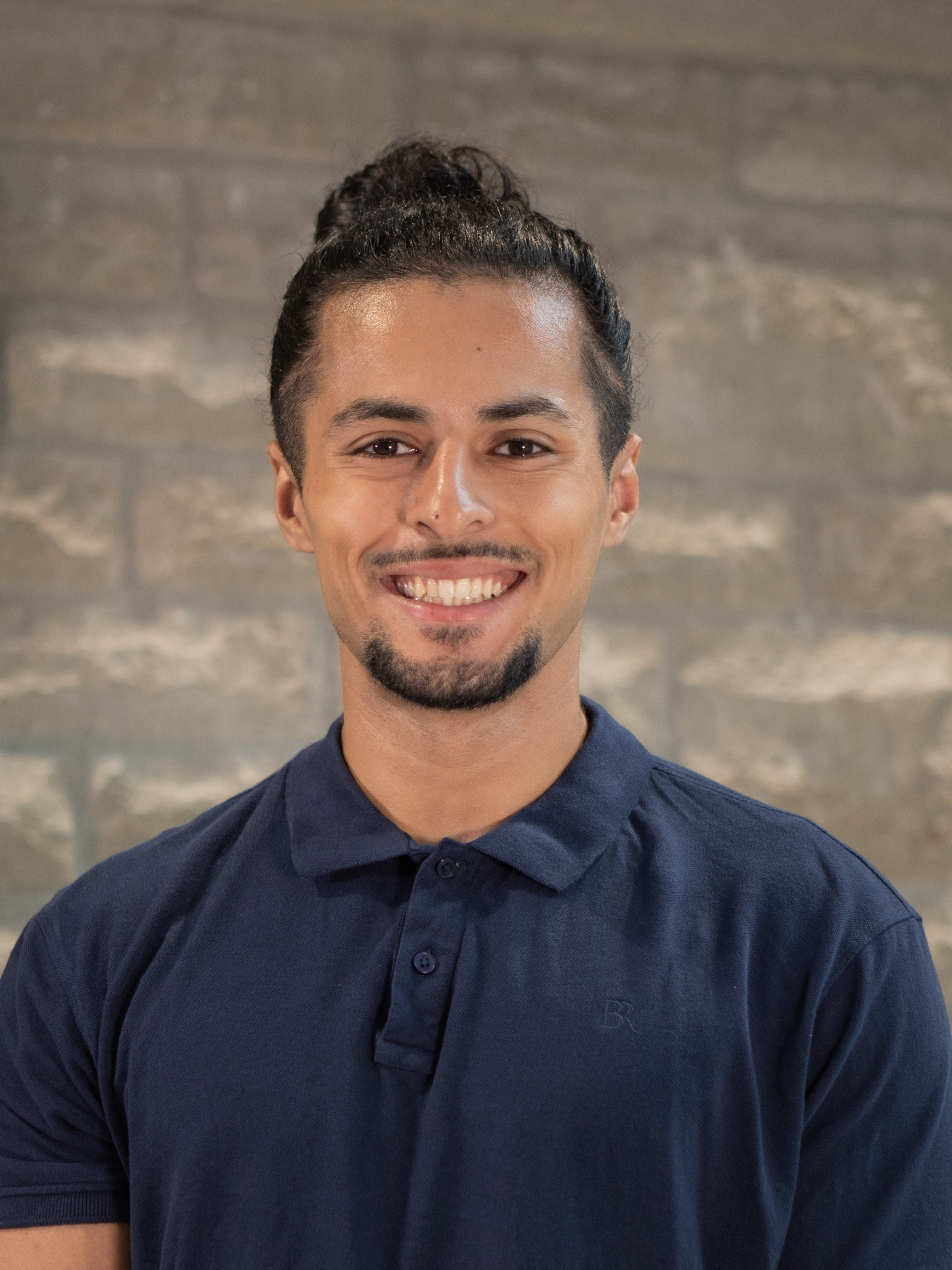
1. With Medical Societies
- MedSoc Meeting Visitations: I plan to strengthen ties between the ORD and Ontario’s MedSocs. With MedSoc approval, I’ll attend school-specific meetings to better understand school-specific challenges and present this information to the CFMS and stakeholders.
- Increasing Funding to Attend CFMS Events: The current Director of Government Affairs managed to raise $25,000 to support Medical Education Day of Action travel expenses. In combination with a recently increased Travel Equity Fund, I’ll work with my fellow Regional Directors and CFMS leadership to secure more funding for VP Externals to attend national events.
2. With Students
- Increasing CFMS Presence: At this year’s OMSA retreat, I was surprised the CFMS did not present, despite other organizations attending! I plan to increase awareness of the CFMS to students by drafting a Visibility Strategy that will be incorporated into spaces that Ontario students occupy.
- Increasing Satellite Representation: Ontarian satellite campuses often feel underrepresented. I will work with Queen’s-Lakeridge, Schulich-Windsor, and McMaster-Waterloo/Niagara to ensure their voices are heard at the representative roundtable and beyond.
3. With OMSA
- Co-operative Events: Despite the CFMS and OMSA having different objectives, both provide opportunities to students. I will organize collaborative events that will strengthen our relationship, respect organizational differences, and support Ontarian medical students.
4. With All Three
- Orientation Touring: At Queen’s, Orientation touring was seamless thanks to ORD, OMSA, and MedSoc collaboration. I will standardize this partnership for O-Week touring and tailor CFMS visits to the vision of each school.
- Building a Nest for TMU: As one of Canada’s newest schools, TMU deserves strong support. I’ll work with the CFMS to set a precedent for welcoming new schools, like York and SFU, by making TMU’s students feel welcomed from day one.
Please reach out if you have any concerns!
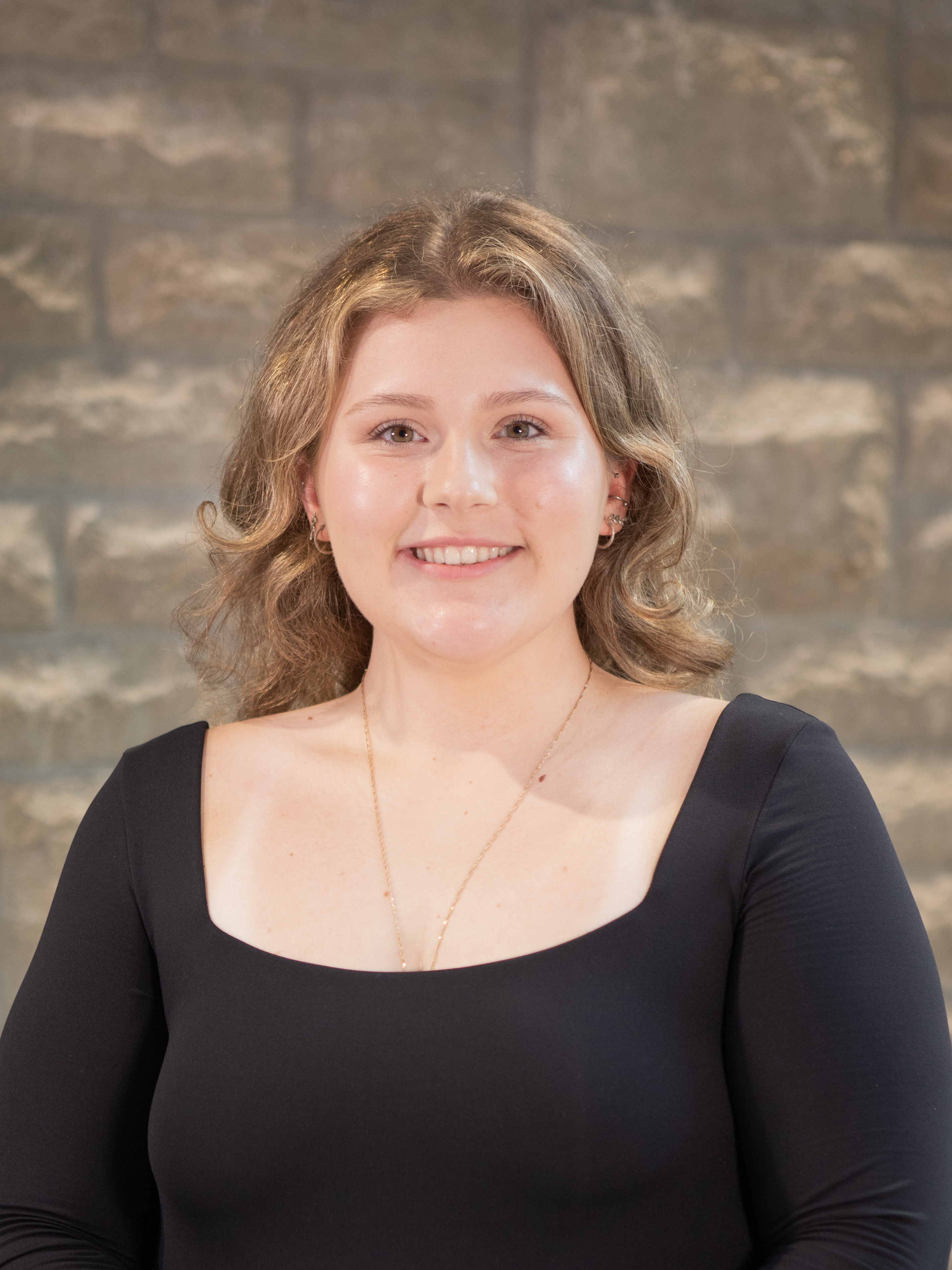
Platform for Western Regional Director
1. Make CFMS communication work for Ontario students: clear, consistent, and student-centered
CFMS decisions shouldn’t feel like announcements, they should feel like conversations students are a part of.
a. Share termly ‘Here’s What You Missed’ updates that summarize Board decisions and efforts that impact Ontario learners
b. Launch a live Ontario advocacy tracker to follow progress on key advocacy initiatives at both CFMS and OMSA levels in one easy place
2. Make it easy and intuitive for Ontario students to get involved
Often, students miss out on CFMS opportunities because the process feels unclear or overwhelming.
a. Distribute a ‘CFMS Starter Pack’ to each school with CFMS structure breakdowns, portfolios, open roles, key contacts, and application instructions
b. Create a choose-your-own-pathway flowchart that links student passions (e.g. planetary health, wellness) to specific CFMS initiatives – to show how your interests can best match current roles and programs
c. Provide targeted onboarding for Ontario medical students who step into CFMS positions
3. Center Ontario student needs in every conversation
Ontario medical schools have unique structures, challenges, and student priorities. These voices deserve more than representation; they deserve meaningful action.
a. Run quarterly feedback surveys with Ontario medical school society presidents and drop-ins to bring student voices to the Board directly
b. Build a comparative Ontario medical school policy map to show differences in electives, wellness policies, match supports, and advocacy channels
c. Strengthen CFMS-OMSA collaboration by ensuring clear communication of student concerns across both organizations and joint events

PILLAR: Strengthening Regional Connectivity and Representation
Bridging Ontario Voices to National Advocacy
As PB Academy Rep and Class Council member at UofT, I’ve relayed the voices of 60+ students and co-led inclusive events. As Ontario Regional Director, I’ll ensure every medical school is represented through regular town halls, structured updates, and direct channels for student leaders to share feedback. I’ll introduce a streamlined system where each school can submit formal updates and concerns to be raised with the CFMS Board.
Collaborating Across Regional Networks
From organizing OSMERC keynotes to leading community workshops through my NeuroBridge nonprofit, I’ve built strong inter-school partnerships. I’ll leverage these experiences to foster meaningful collaboration among Ontario medical societies. I’ll work with CFMS portfolios—like Student Affairs and Education—to co-develop inter-school mentorship programs and shared advocacy strategies on issues like curriculum reform and wellness.
Empowering the CFMS–OMSA Link
With experience navigating both CFMS and OMSA, I’ll strengthen communication and foster joint initiatives—like provincial mentorship, wellness programming, and aligned advocacy campaigns—ensuring Ontario’s collective voice drives national change.
PILLAR: Advancing Equity and Medical Education Innovation
Championing Disability-Inclusive Education
As Pre-Clerkship File Lead for the CFMS Education Advocacy Task Force, I led the disability file and presented at the Day of Action. I’ll continue to advocate for national accommodations policies and increased representation of students with disabilities.
Supporting Religious Expression
I co-authored policy advocating for sterile OR adaptations for students wearing religious attire. I’ll promote inclusive clinical learning spaces where students can practice without compromising their identity.
Innovating Medical Education
With experience at the Wilson Centre and in the Students as Teachers Program, I’ll support peer teaching, medical education research, and sharing innovations across Ontario schools—from AI-integrated learning to flexible curricula.

Hey everyone! I’m Ragav (he/him) — a second-year student at the University of Toronto and the current Vice President of External Affairs. After two years representing 1,100 peers on the OMSA Council and CFMS Roundtable, I’m running to be one of your CFMS Ontario Regional Directors (ORDs). My goals are clear: deliver timely information, equitable opportunities, and a stronger sense of community for every Ontario medical student.
1. Efficient Communication & Active Representation
- Introduce a shared cloud calendar that collates grants, deadlines, and events for all MedSocs, reducing email clutter and missed chances.
- Hold open door meetings and visit each MedSoc at least once to better understand local priorities and represent them nationally.
- Redesign Representative-Roundtables into 60-minute, action-oriented focus groups that generate concrete tasks and track progress, highlighting and supporting student-led advocacy efforts regarding national policy discrepancies (e.g., medical education).
2. Stronger Travel Equity Fund & Fair Conference Access
- Secure new sponsorships and propose a supplementary funding pool earmarked for schools with historically lower conference attendance.
- Drawing on my past success advocating to faculty for increased conference funding, I’ll equip MedSoc leaders with tailored advocacy strategies to support balanced Ontario representation on national stages.
3. Orientation Week – Value Beyond Visibility
- Confirm CFMS sessions with OMSA and every UGME office by June prior to the term so they appear in official O-Week schedules.
- Pair each campus visit with a facilitated meeting between CFMS, faculty leaders, and student advocates to discuss pressing issues at their respective medical school.
- Deliver a unified toolkit — slides, resource links, and grant guides — so first years leave with actionable next steps.
4. Ontario Games: Community in Motion
- Launch the inaugural OntarioGames with OMSA Student-Affairs, supported by OMA Insurance, MedsHousing, and other partners.
- Combine wellness, sport, and advocacy workshops, with travel bursaries for satellite campuses to ensure province-wide participation.
Let’s turn ideas into impact and build an empowered, connected Ontario medical student community — together.
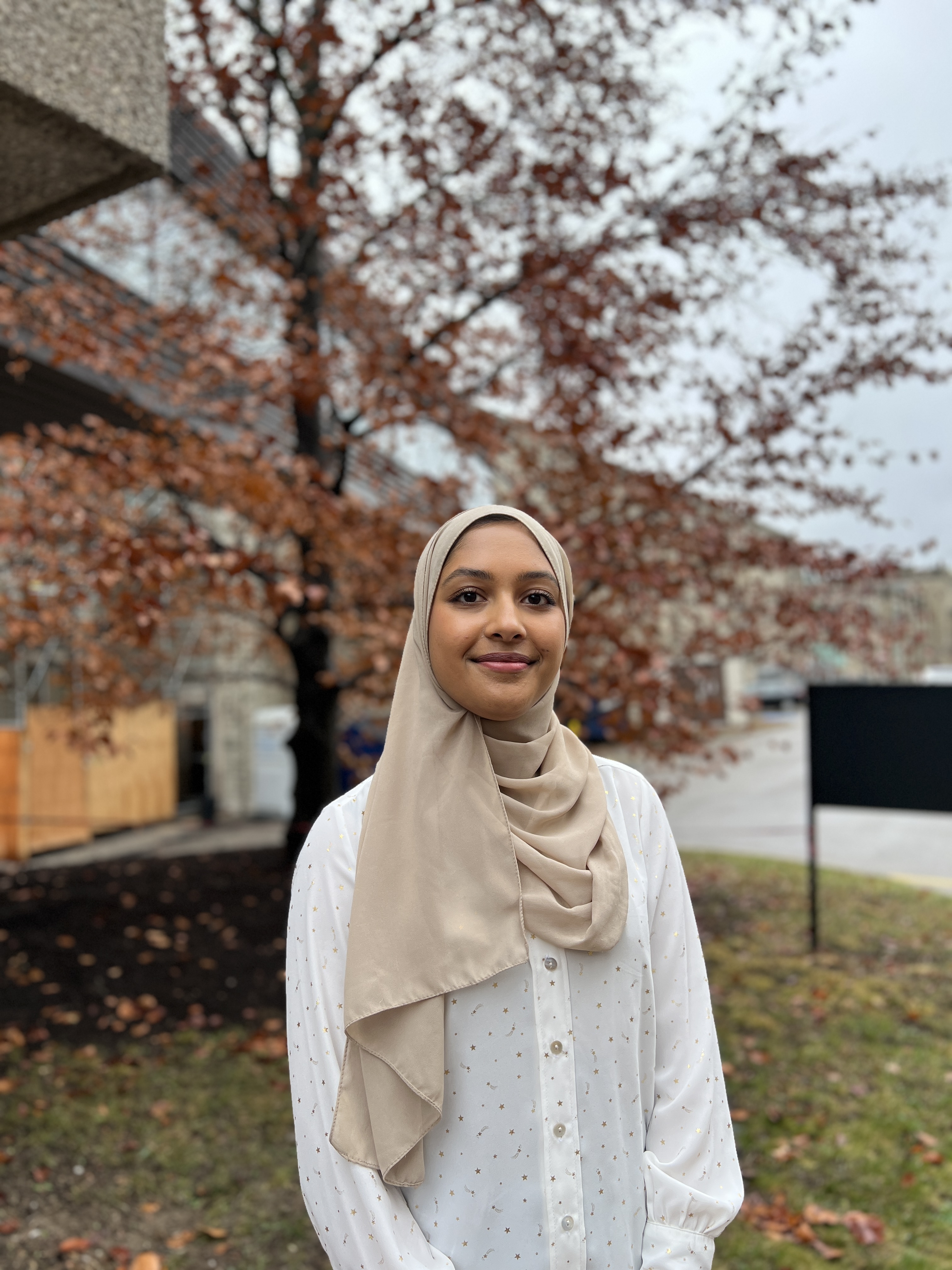
Hi everyone! My name is Tarannum (she/her), and I’m a Meds2027 student at Western. I’ve had the privilege of working with the CFMS as the National Officer for Global Health Education, where I’ve seen firsthand the power of cross-school collaboration and the value of strong, open communication between the CFMS and its members. I’m running to be your next Ontario Regional Director because I want to help strengthen those connections and advocate for the needs of Ontario students at the national level.
Over the past year, I’ve worked closely with students from across the province and country through the Global Health, Government Affairs, and Student Affairs portfolios. These experiences have taught me how essential it is to ensure Ontario students feel heard, supported, and included in CFMS decision-making — especially on issues that directly affect us. I’ve also been involved at Schulich through Hippocratic Council and GAAC, and bring a strong understanding of how student governance operates at local and national levels.
As Ontario RD, I would prioritize:
- Maintaining strong, open lines of communication with CFMS reps (i.e., VP Externals, Med Society Presidents) and student leaders — being responsive, transparent, and accessible.
- Making President’s Roundtables more engaging, with structured, themed discussions, school shoutouts, and peer-led problem-solving.
- Collaborating meaningfully with OMSA and CFMS portfolios by identifying shared priorities (e.g., student wellness, transitions to clerkship/residency) and helping teams connect — such as linking OMSA’s Student Affairs reps with CFMS wellness leads where appropriate.
- Acting as a steward for EDID, ensuring CFMS’ equity-focused perspectives are integrated into local conversations and advocacy.
I’m excited about the opportunity to keep building bridges — between students, portfolios, and provincial partners — and would love the chance to represent you as Ontario RD.
Thank you so much for considering voting for me! 🐸

Dear CFMS Members,
My name is Tyler Williamson, MS2 and current Aesculapian Society President at Queen’s University, and I am honoured to be running for Ontario Regional Director.
I believe in a collaborative, action-oriented approach to supporting medical learners—one rooted in transparency, equity, and the belief that students should have a voice in shaping their education. As Class President last year and now Society President, I’ve worked closely with my UGME and made difficult decisions to protect students, including filing a formal complaint against a faculty member who was targeting learners. This year, I’ve restructured our student society to increase accountability and restore lost initiatives. I want to bring that same momentum to Ontario’s regional voice at the CFMS table.
Ontario is home to both legacy institutions and rapidly expanding campuses. With new and distributed sites like Queen’s-Lakeridge and NOSM’s evolving footprint, learners face growing disparities in access to services, clinical exposure, and mentorship. I will elevate these voices and advocate for equity across all campuses.
I am also committed to addressing the rise in remediation and failure rates through inter-school collaboration, as well as advocating for improved electives scheduling and mentorship access, particularly in underserved disciplines.
As Ontario Regional Director, I will act as a strong conduit between students and the CFMS, ensuring that Ontario’s diverse and evolving needs are reflected in national advocacy. I look forward to listening, representing, and working together to build a more equitable future for all Ontario medical students.
Thank you all kindly,
Tyler Williamson
Quebec Regional Director
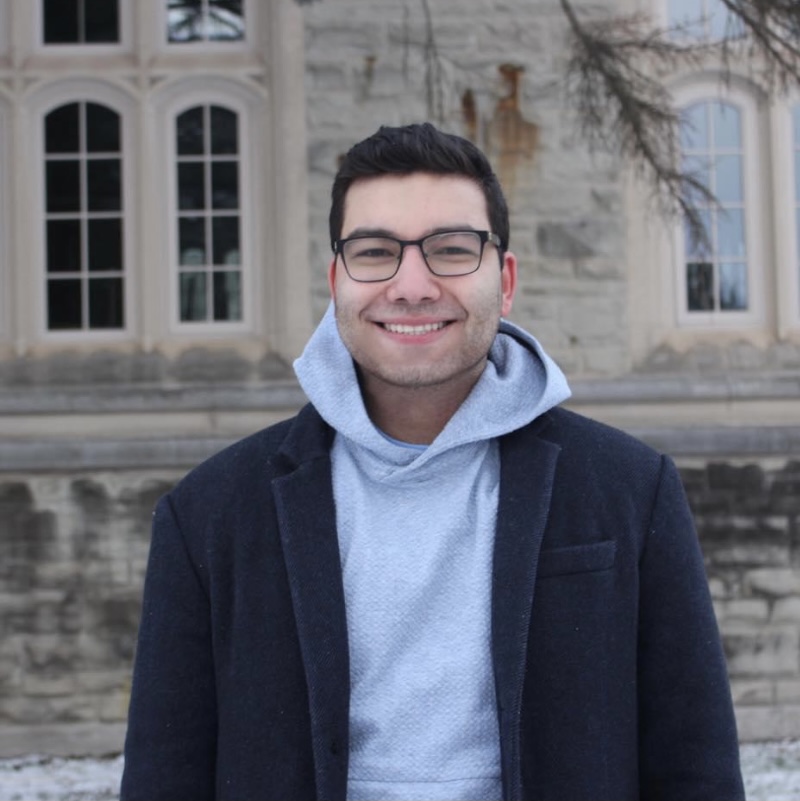
As the Québec Regional Director of the Canadian Federation of Medical Students (CFMS), I will continue to commit to representing the diverse voices and needs of medical students across our province. With a focus on advocacy, engagement, and support, my platform aims to foster collaboration, amplify student voices, and ensure the well-being of all medical students in Québec.
Advocacy
- Policy Influence: By actively engaging with CFMS committees, task forces, and working groups, I will continue to work to shape policies that address the unique challenges faced by medical students in Québec, including those relating to language, issues faced by satellite campuses, and the shortage of residency training spots in the province.
Engagement
- Regional Roundtable: Organizing teleconferences and in-person meetings, I will facilitate discussions among Québec CFMS Representatives and class leaders to address regional and national issues affecting medical students.
- Connection Building: Through regular attendance at medical society meetings and institutional visits, I will work to foster strong relationships and open channels of communication with medical students and societies across Québec.
- Bilingualism Task-Force: Continue to employ efforts to promote bilingualism within the CFMS and ensure inclusivity for Francophone medical students.
Support
- Operational Execution: I will execute operational tasks directed by CFMS leadership, ensuring efficient functioning of regional initiatives.
- Student Consultation: Through focus groups and feedback mechanisms, I will actively seek input from Québec medical students, including those of non-member schools, to address their needs and concerns.
- Transition Facilitation: I will ensure a smooth transition for the incoming Québec Regional Director, providing support and guidance following elections. This includes understanding ongoing projects and ensuring the continuation of the long-term strategic direction of the portfolio.
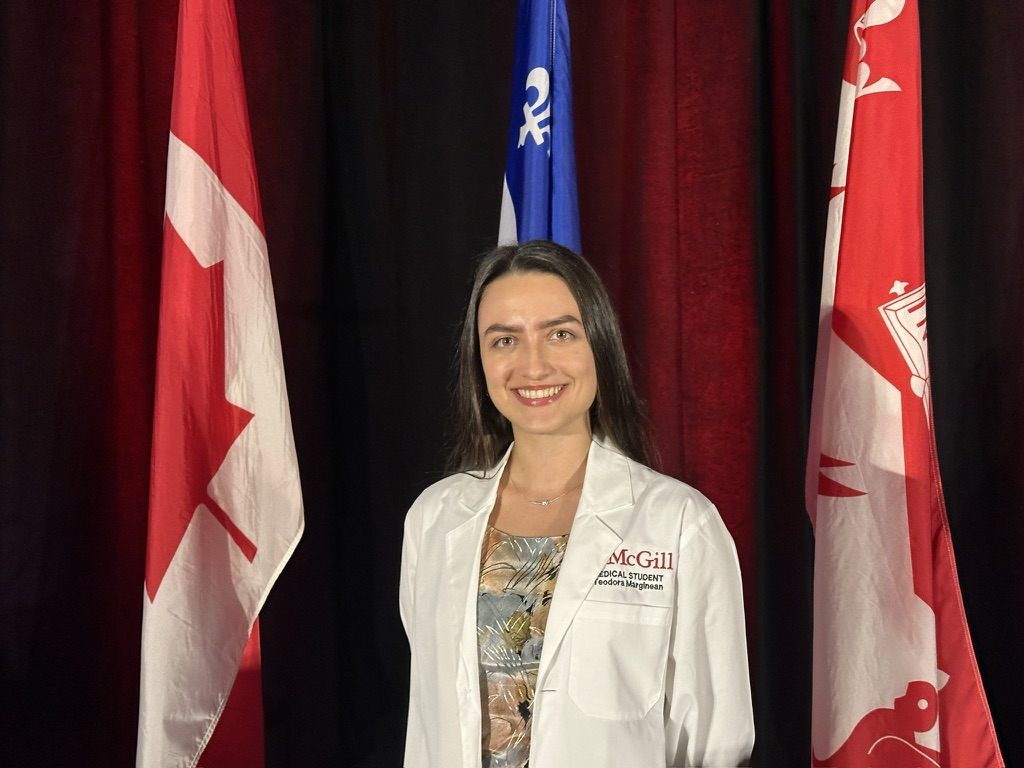
Having served as McGill’s Government Affairs and Advocacy Officer since March 2024, I’ve spent the last year already working at both the national and provincial levels similar to the CFMS Québec Regional Director role. I’ve built strong relationships within CFMS and the FMEQ, understand the current political landscape, and feel well-prepared to step into a role with more responsibility.
As Québec Regional Director, I would prioritize three main things:
1. Strengthening Collaboration Between CFMS and the FMEQ
McGill is in a unique position, as the only Quebec school officially part of both organizations. I want to make that dual membership an asset and improve joint advocacy efforts, communication between our reps and leadership, shared events, and policy development. I also want to make CFMS initiatives more accessible to Quebec students outside McGill, whether that’s National Day of Action, global health initiatives, or awards and leadership opportunities.
2. Enhancing Bilingualism and Accessibility
Our student community is bilingual, and our national body needs to reflect that. I would continue current work to ensure all CFMS resources and meetings are accessible in both French and English, and to spotlight Quebec’s issues and contributions more clearly on the national stage. I would also like to engage Francophone students and support them in organizing events or writing papers.
3. Advocating Around Bill 83 and CaRMS Uncertainty
Bill 83 has created a lot of anxiety for students in Quebec. I want to support our med socs in navigating the changes it brings, especially for incoming students. I would continue advocating for clearer provincial strategies and more national dialogue and engagement about how this could affect CaRMS equity. Another important issue I’d like to address is the mismatch between unfilled Quebec residency spots (particularly in family medicine) and student interests.
Merci pour votre attention!
Atlantic Regional Director
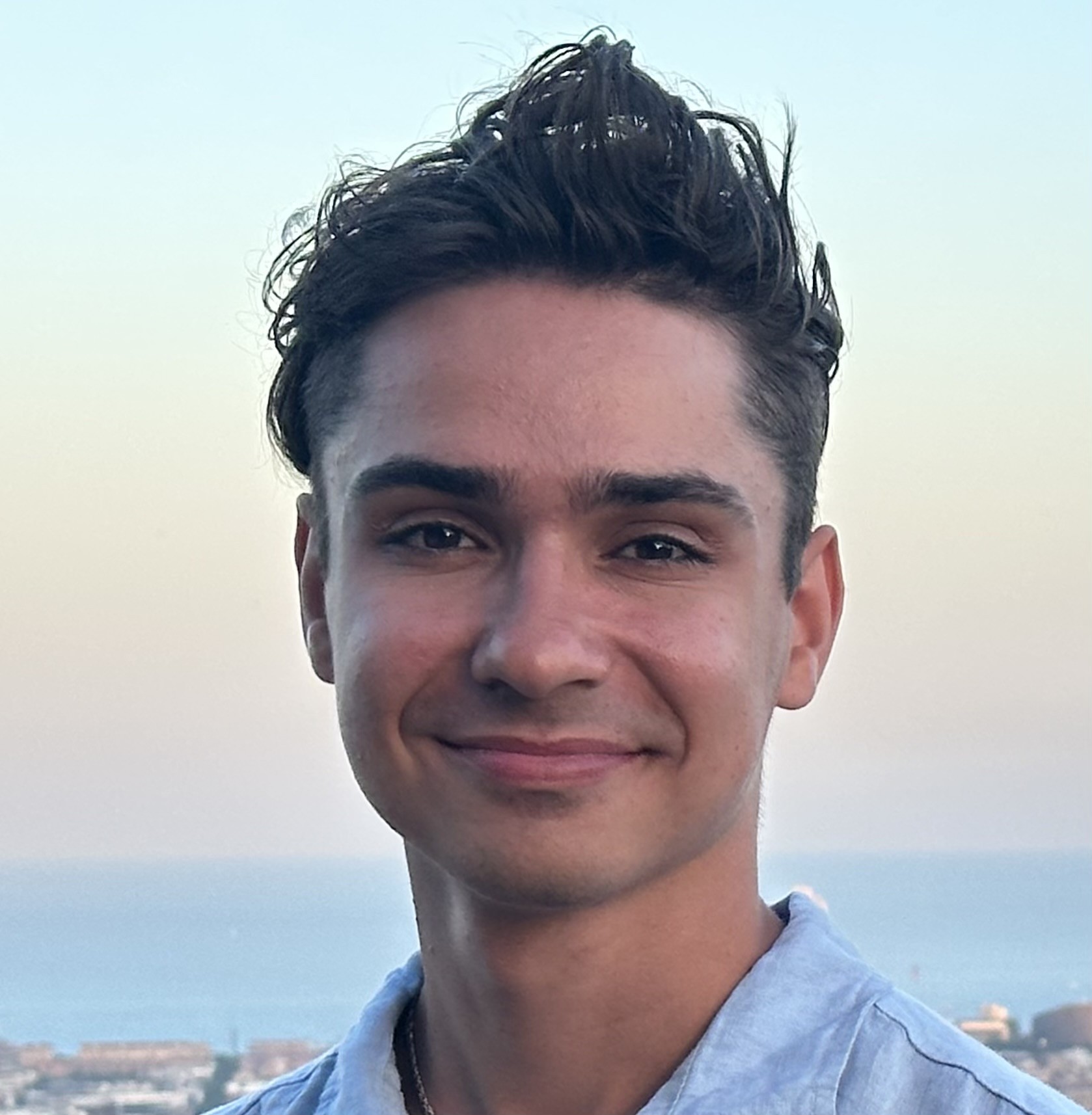
Dear CFMS Members,
It is my privilege to present myself as a candidate for Atlantic Regional Director.
As someone who grew up in the Atlantic Provinces, I’m deeply passionate about empowering our region. Guided by my experiences as Dalhousie’s VP-External this year, my platform can be divided into three pillars: Connect, Amplify, and Clarify (transparency).
1. Connect: Building Our Atlantic Medical Community and Promoting National Engagement
- As Local Chair of the inaugural Atlantic Med Games, promote the event’s sustainability.
- Having discussed logistics with the current CFMS Director of Government Affairs, promote student and government discourse by working with GAACs to bring back Provincial Days of Action in Nova Scotia, New Brunswick, and PEI, while supporting MUN’s current PDoA.
- Boost promotion of CFMS initiatives (NDoA, AGMs, International Exchanges) by increasing awareness and use of the Travel Equity Fund.
2. Amplify: Engaging Stakeholders and Med Socs, Especially Regarding the Elective Portal
- Emphasize strong relationships with Med Socs by meeting regularly with presidents and VP-Externals to identify unique needs.
- Gather feedback via surveys and offer to attend Med Soc meetings to provide CFMS updates directly and maintain continuous dialogue.
- Strengthen CFMS involvement in communicating information regarding the new Elective Portal, and incorporate senior students and Med Soc members for feedback.
3. Clarify: Increased Transparency
- Drawing on my municipal politics experience, I’ll create an ARD page on the CFMS website with monthly updates on my work and progress on initiatives. This will promote accountability and transparency for the role.
- Post up-to-date information regarding CFMS opportunities on the page to create a "one-stop shop" for students, making it easier to stay informed beyond the current email model via VP-Externals.
Please reach out to me at any time at [email protected]!

Kate Lim for Atlantic Regional Director
Advocating for Equity, Opportunity, and Sustainable Support for Atlantic Medical Students
Serving as your Atlantic Regional Director this past year has been an incredibly meaningful experience. I’ve worked to strengthen the connection between CFMS and Atlantic students while championing initiatives that address our region’s unique needs.
One of my proudest accomplishments is launching the inaugural Atlantic Med Games—a wellness-focused weekend that brought together students from across the Atlantic provinces. With strong sponsorships, we kept tickets affordable and created a travel equity fund to ensure financial barriers didn’t prevent participation. Going forward, I aim to strengthen and sustain Atlantic Med Games by building more partnerships and encouraging faculty recognition to boost institutional support and intra-regional collaboration.
This year, I also addressed a major gap in rural clerkship funding. Atlantic students receive significantly less support than peers in other provinces. I created a comparative report outlining funding disparities and began advocating to faculties and health authorities. Next year, I plan to collaborate with VP Externals across Canada to propose a standardized rural clerkship funding model.
Finally, I hope to work with the VP Finance to help make CFMS more financially sustainable so that more funding can flow directly to students. This is especially important for Memorial students, who often face high travel costs that limit national involvement.
I’m seeking re-election because I believe in continuity, collaboration, and the value of regional advocacy. I’d be honoured to continue representing you and building on the work we’ve started together.
I am excited to submit my candidacy for Atlantic Regional Director. I am an incoming 3rd year medical student at Dalhousie University, committed to advocacy, collaboration, and facilitating between Atlantic students and CFMS. I have fostered strong communication and connections with Atlantic medical students and student societies through various work experiences in and for the Atlantic region, from student wellness, outreach, communication for francophone students, to supporting medical education.
Throughout my medical training, I have been actively involved in various associations such as the Canadian Atlantic Medical Student Association (CAMSA) for the past two years, serving on both the Medical Education and Communications’ Bilingualism Committees. These roles have allowed me to contribute to the development of accessible medical education across our region through the creation of the first edition Residency Roadmap resource and educational content that meet the needs of students and areas of gap in education, while also championing linguistic inclusivity and supporting Francophone learners by artistically translating resources to French. I collaborated on advocating for student feedback and creating resources to help students feel supported in their training.
In 2023–2024, I had the privilege of serving as the Director of Skills and Workshops for the annual Conference of Atlantic Medical Students. This experience was incredible, allowing me to bring together students from across the region for a dynamic and engaging weekend. The conference featured a diverse range of workshops—from mindful yoga and art workshops to practical clinical skills such as lumbar puncture and trauma simulations. It was a rewarding opportunity to blend wellness and medical education while building inclusive leadership and peer connections, discovering areas of need. These experiences have not only honed my leadership and communication skills but have also deepened my passion for creating inclusive, learner-driven spaces.
Growing up and continuing my medical journey in the Atlantic region, I remain committed to advocating for medical students, supporting language diversity in healthcare, and helping build a stronger, more unified Atlantic medical student community. I believe that our region has a powerful voice that deserves representation at the national level, and I am deeply motivated to advocate for initiatives that reflect our communities’ lived realities.

